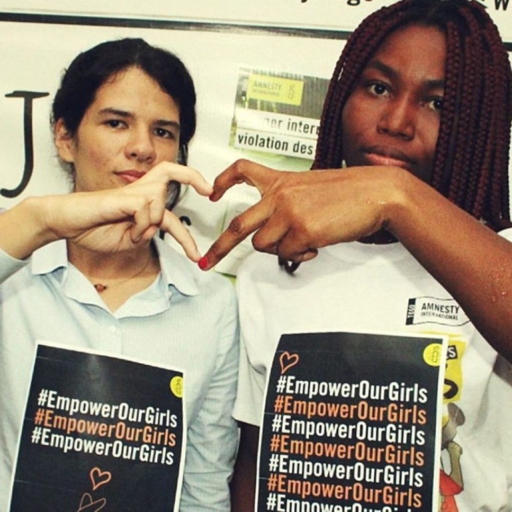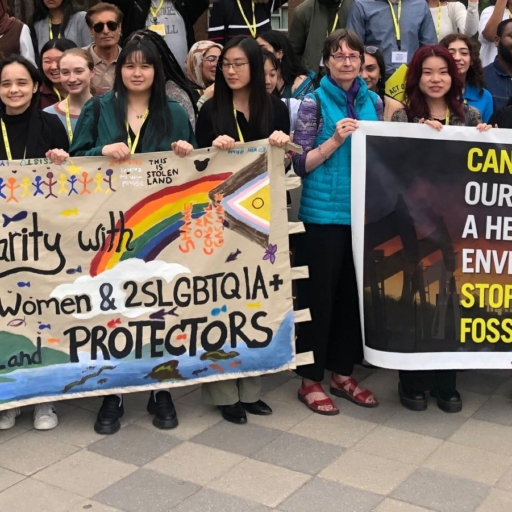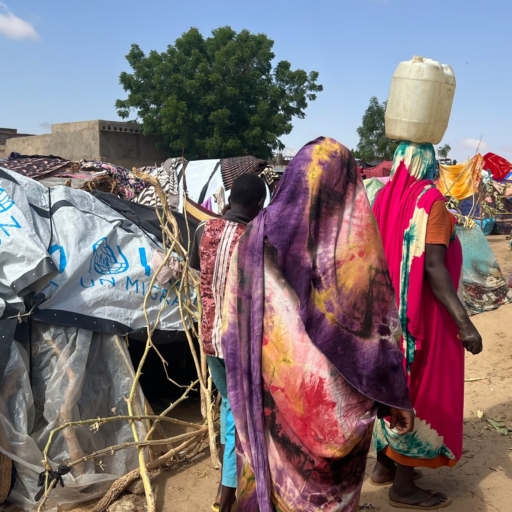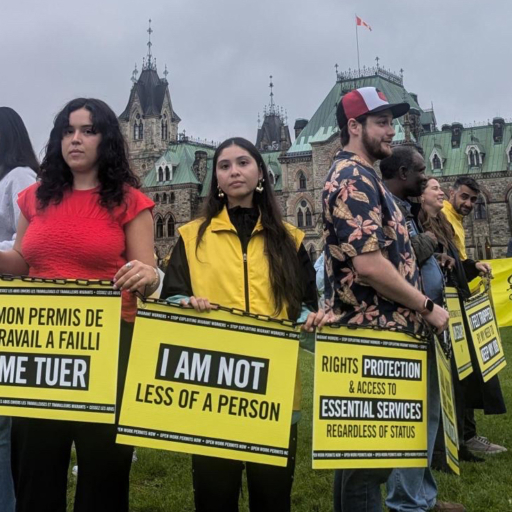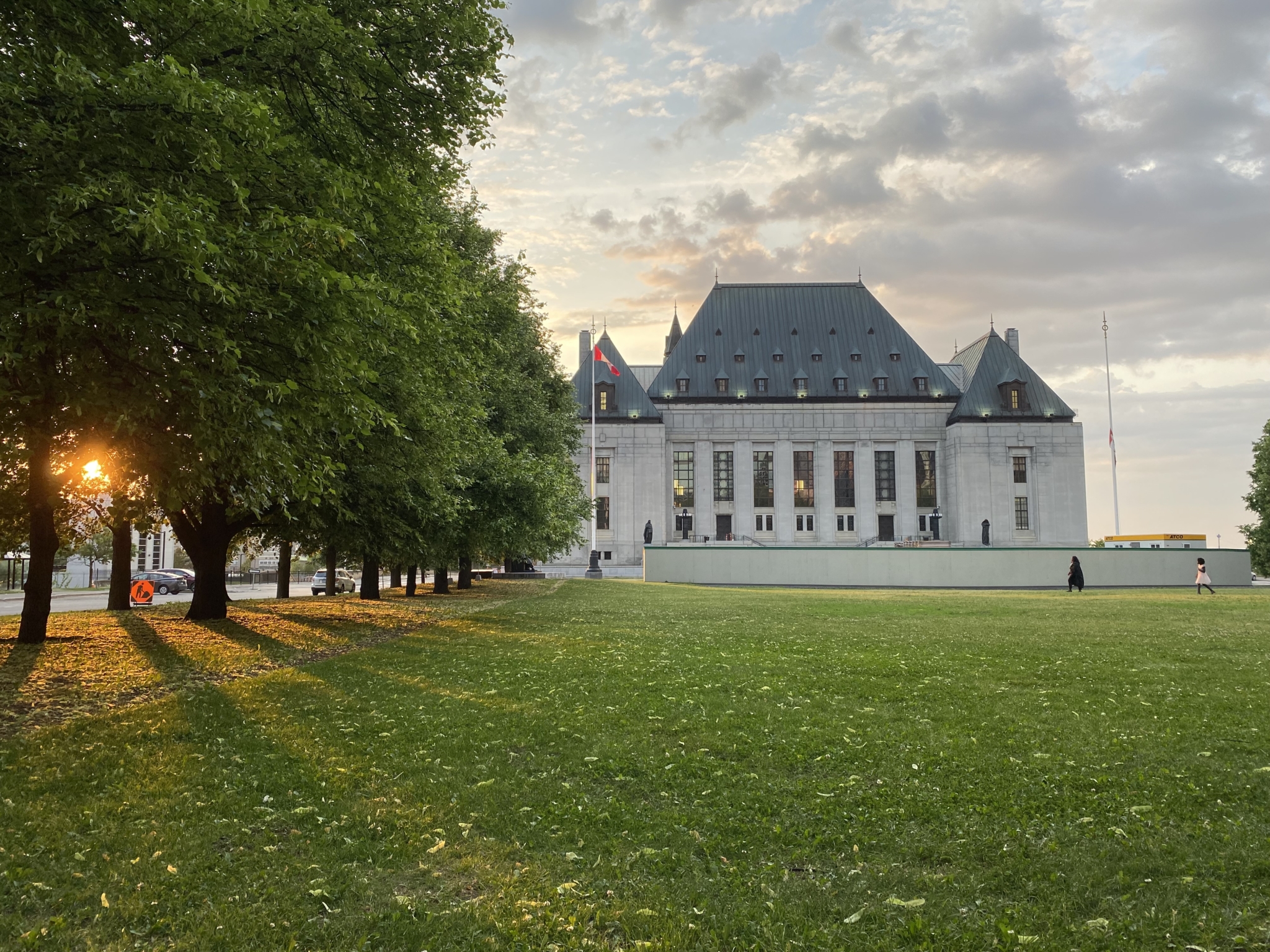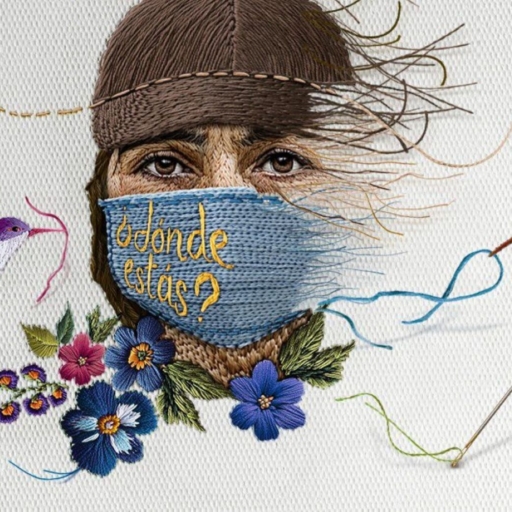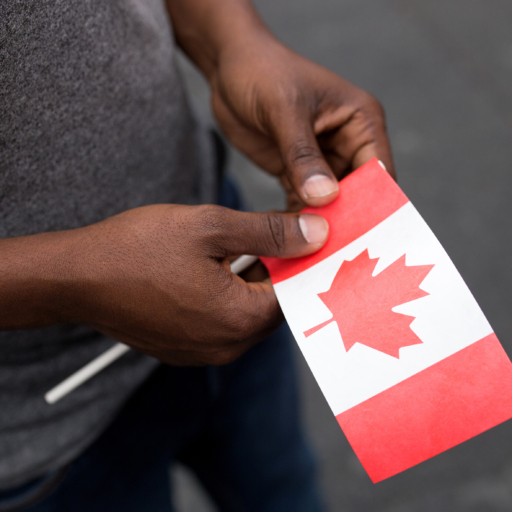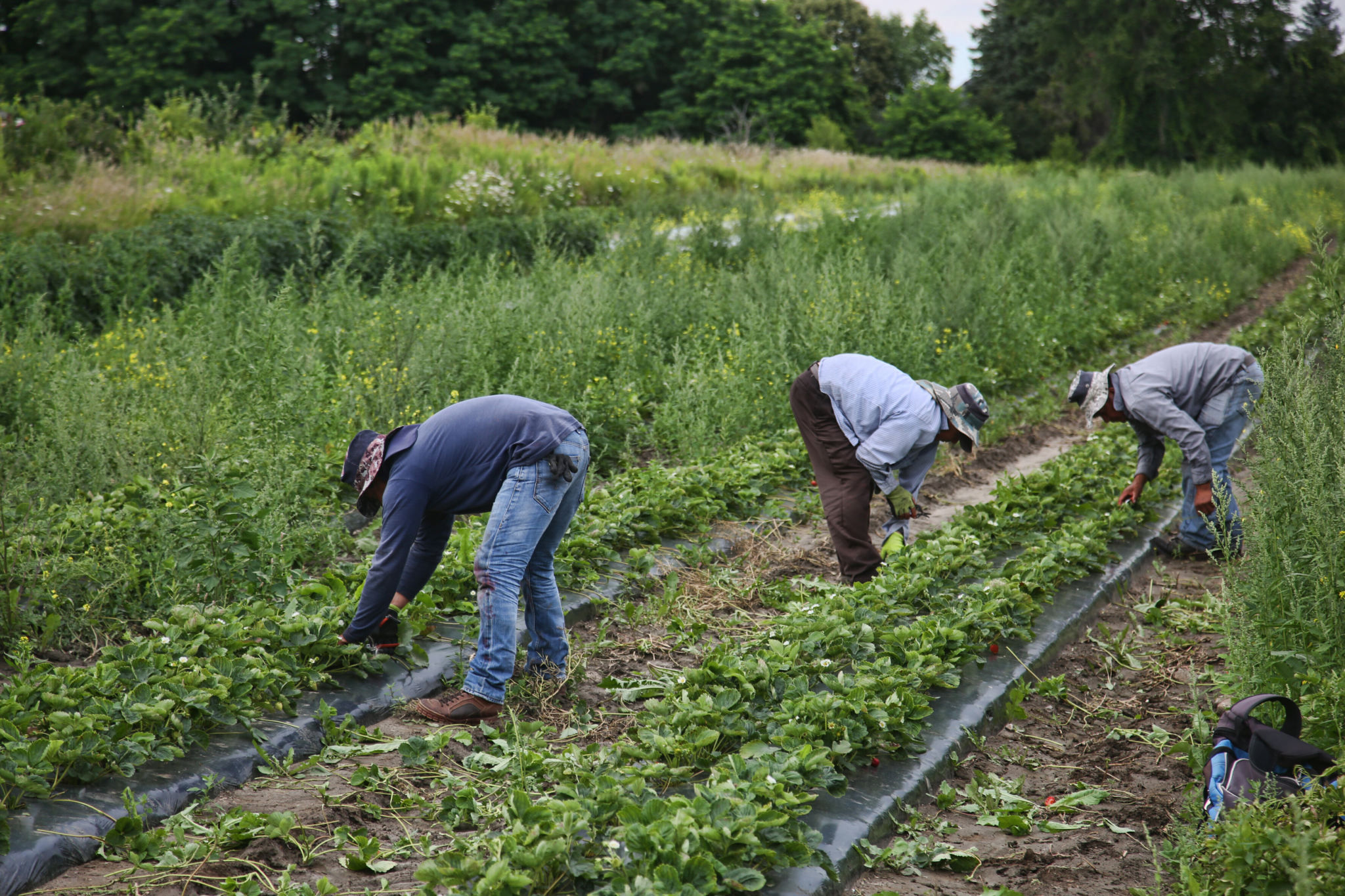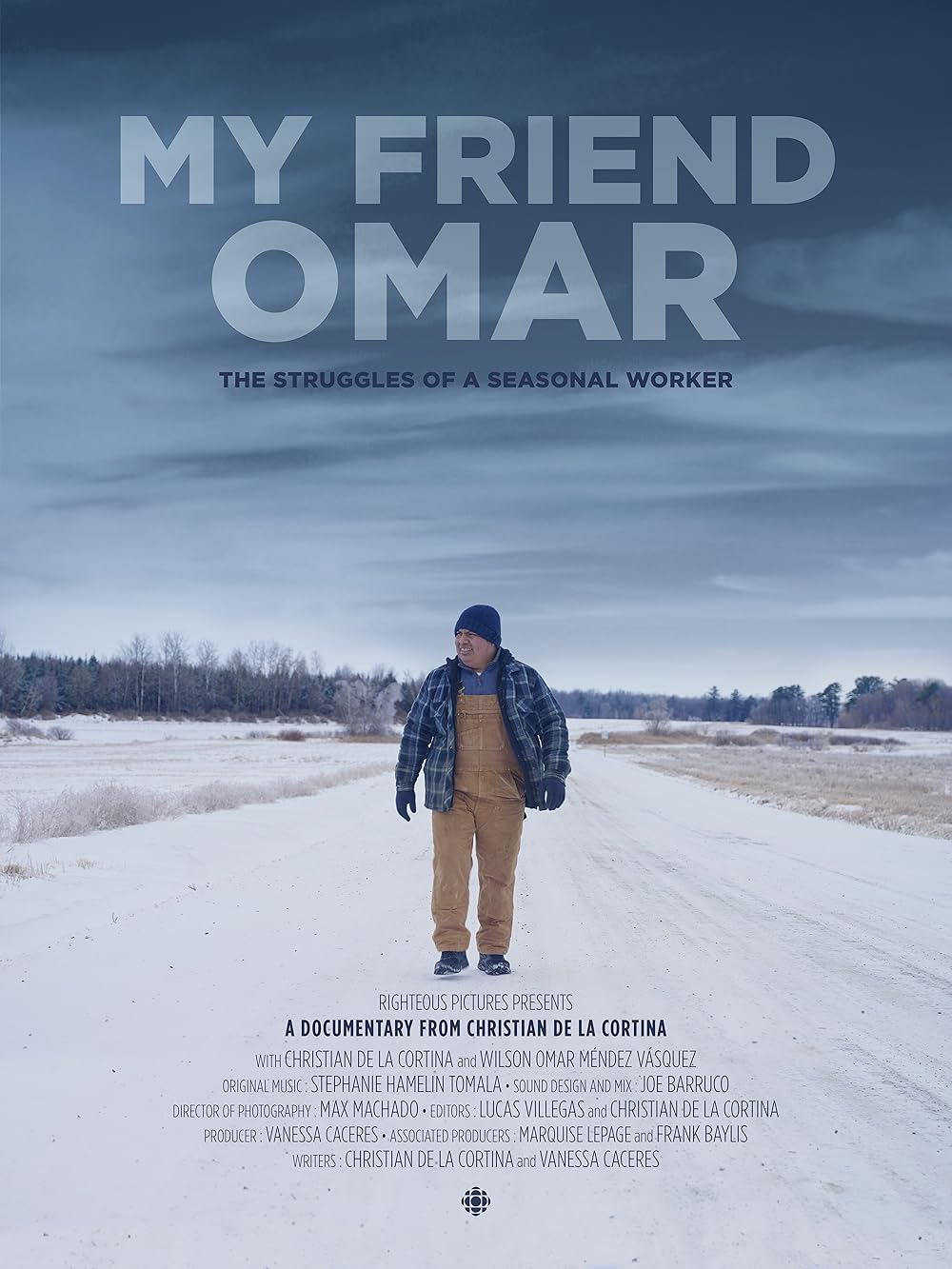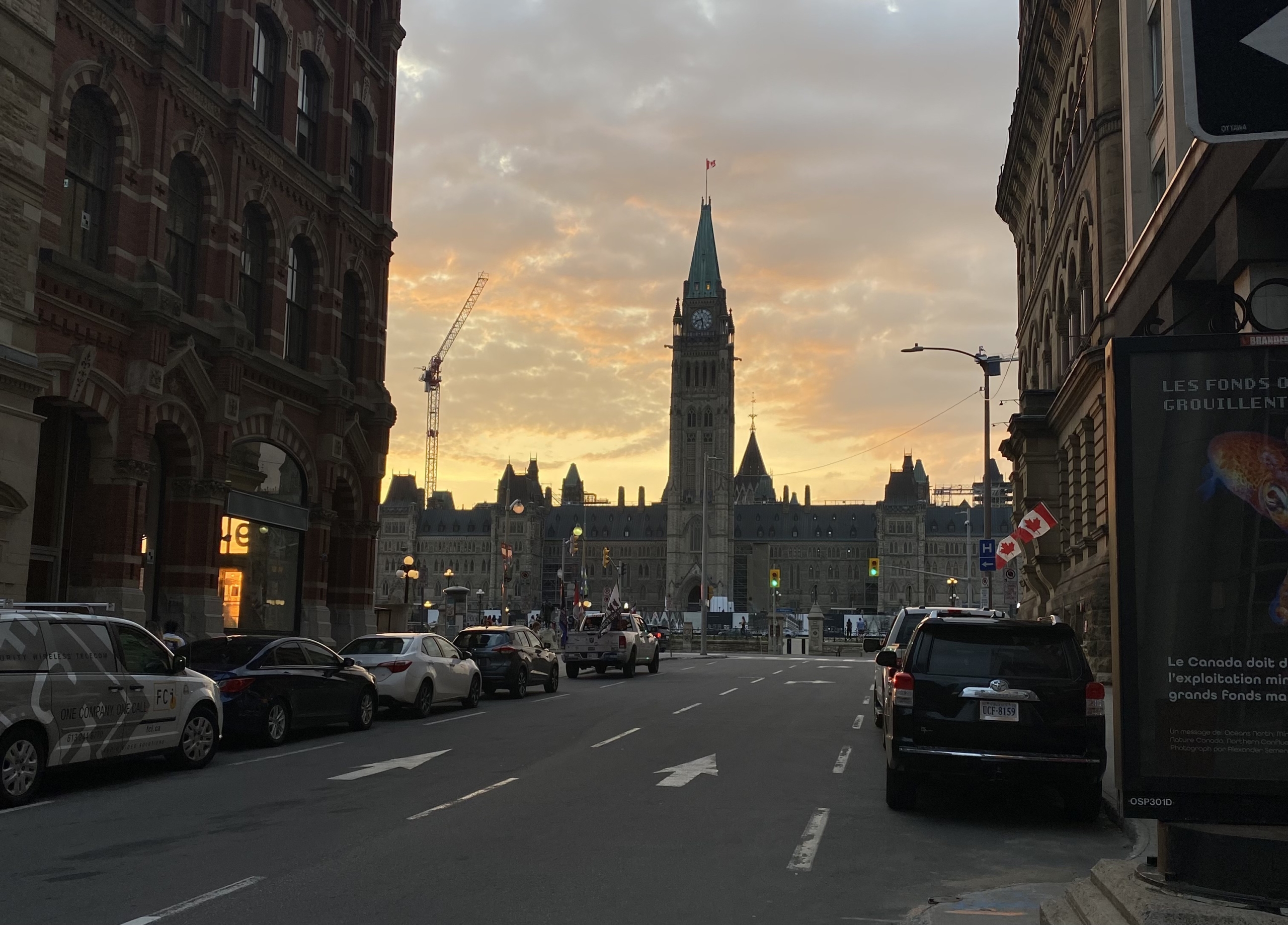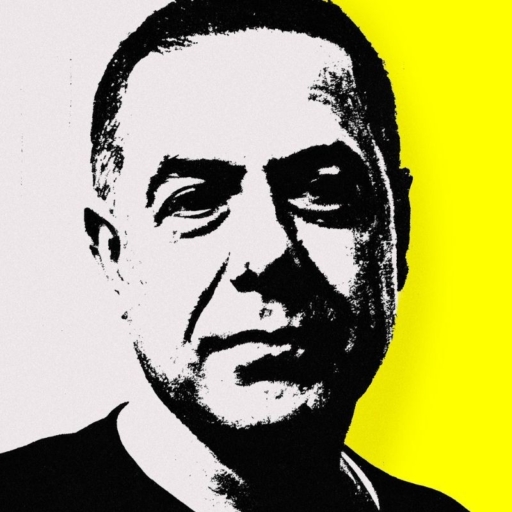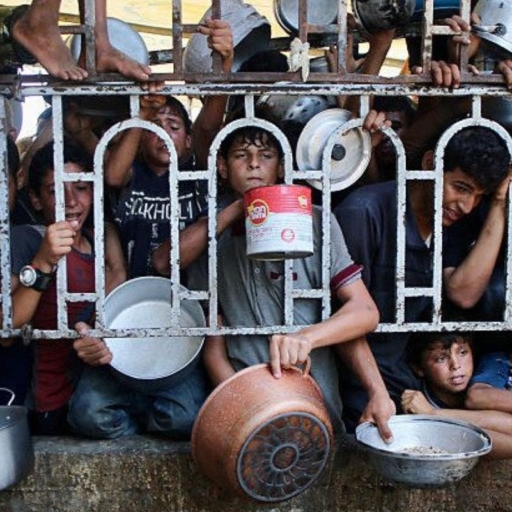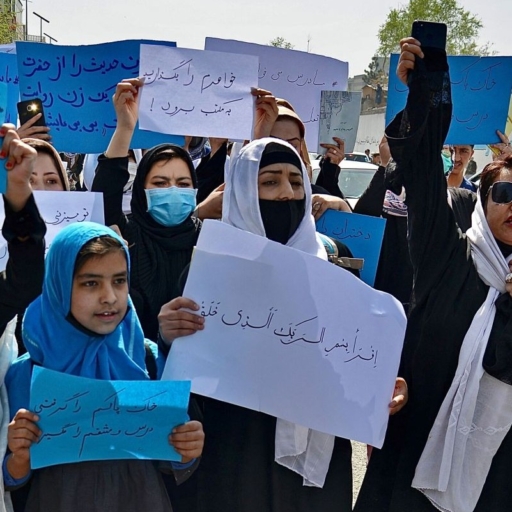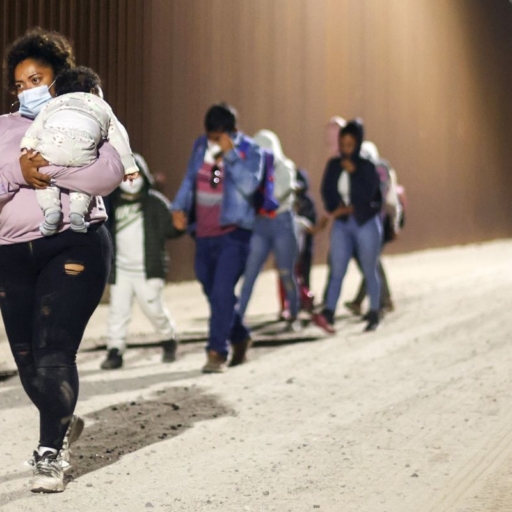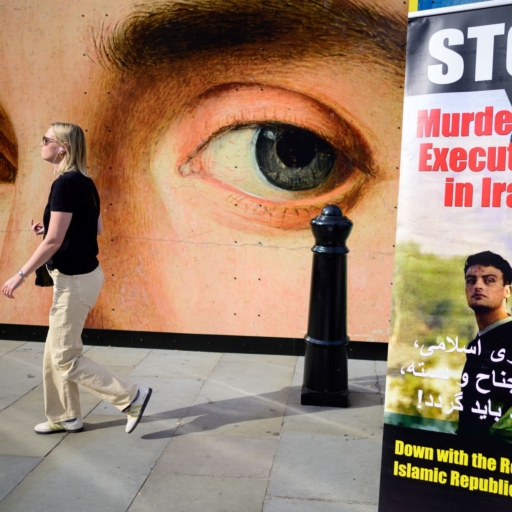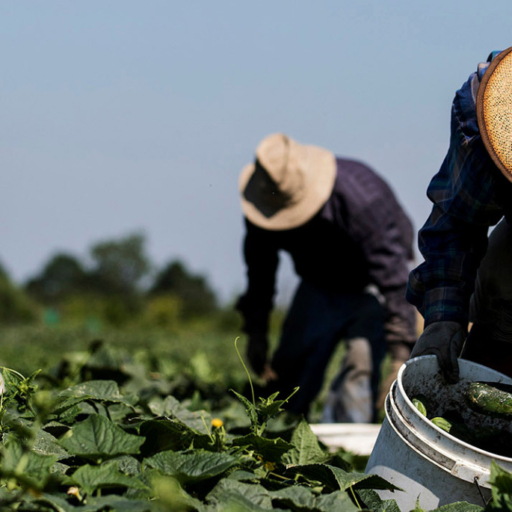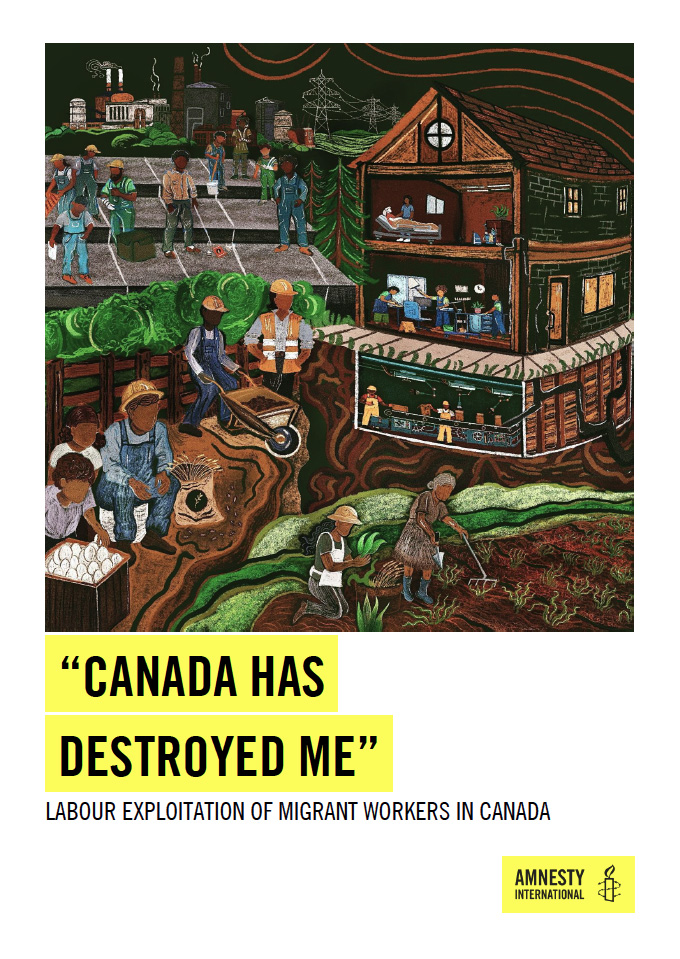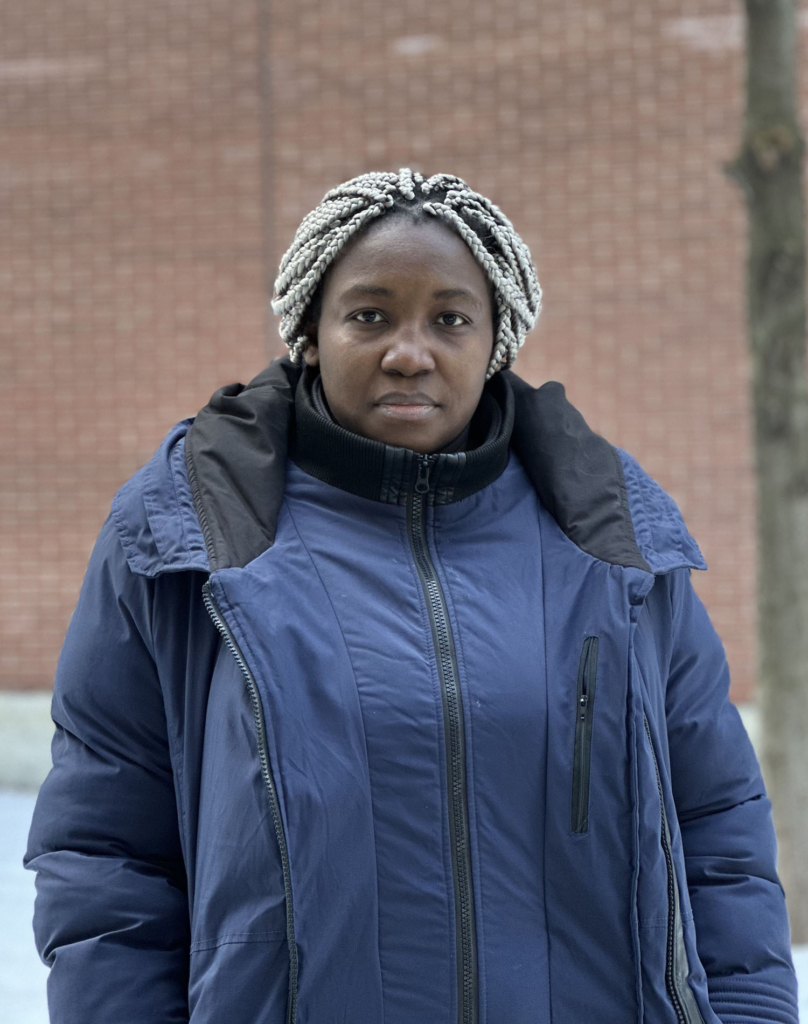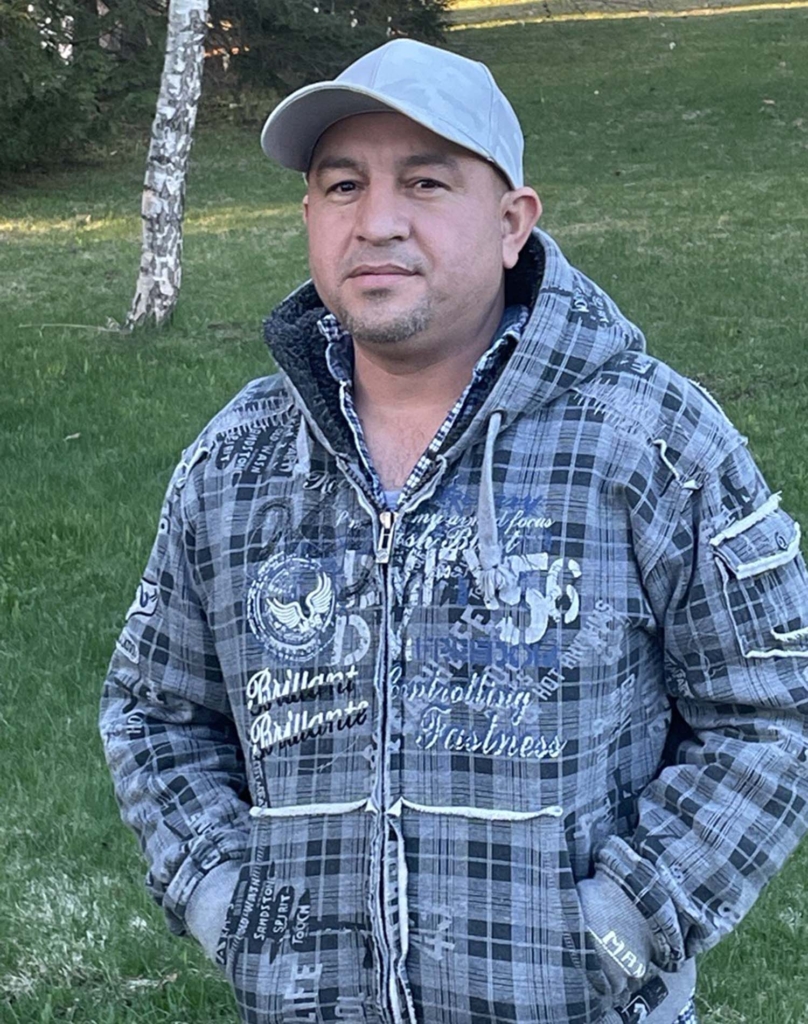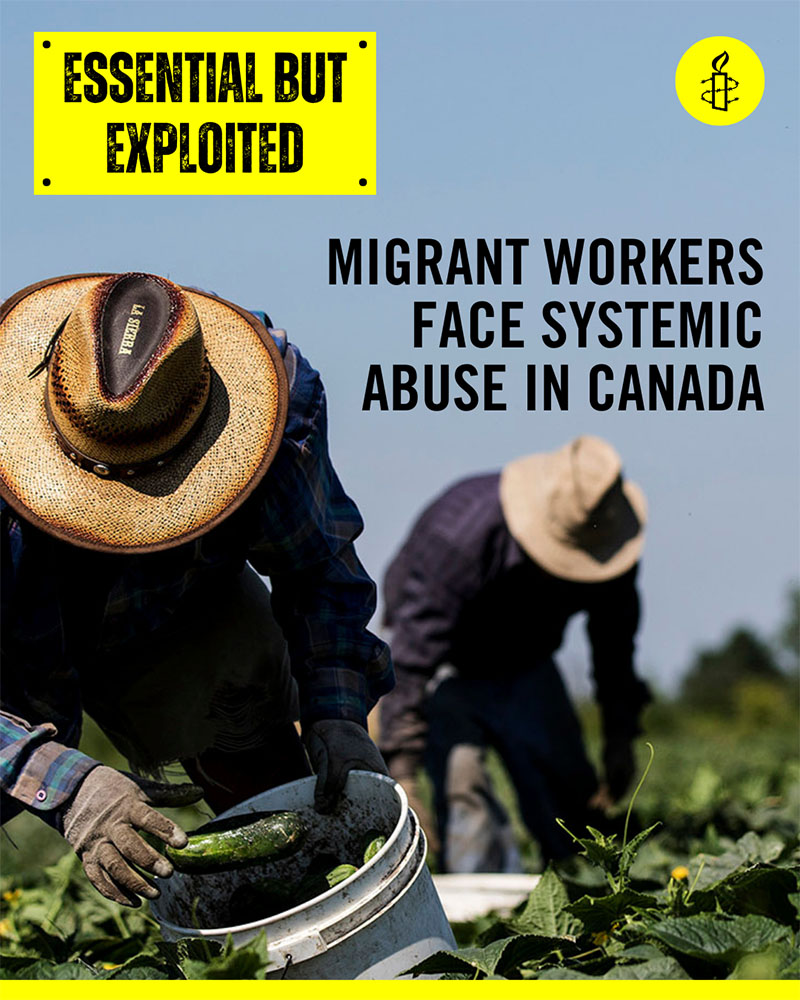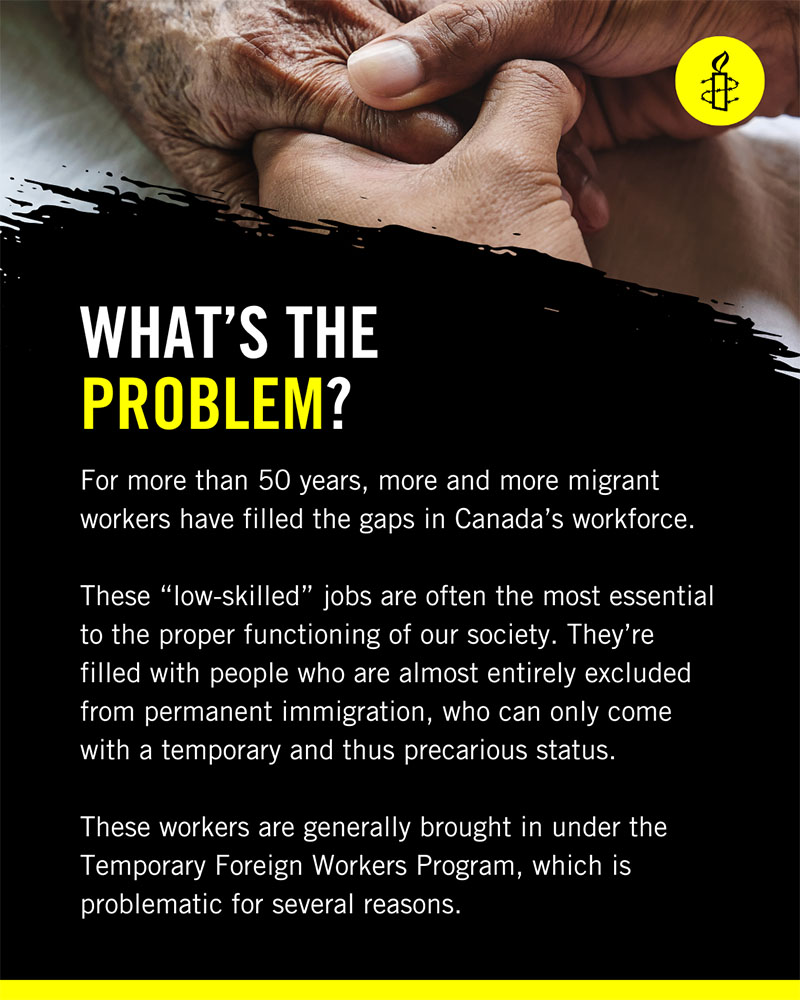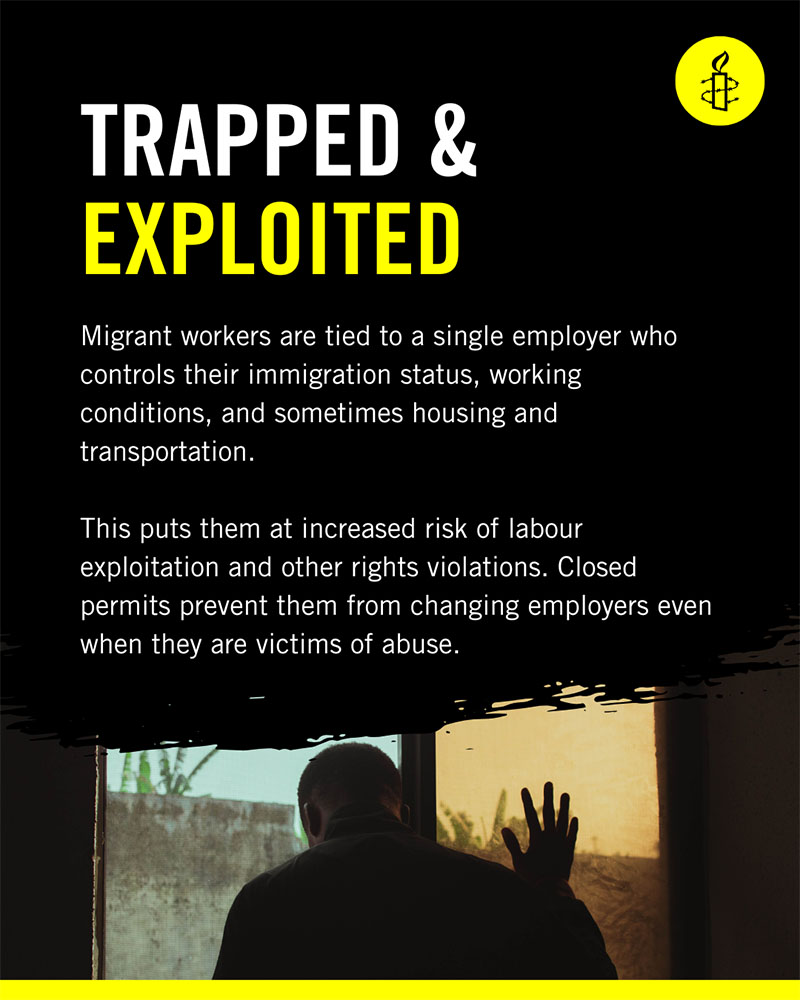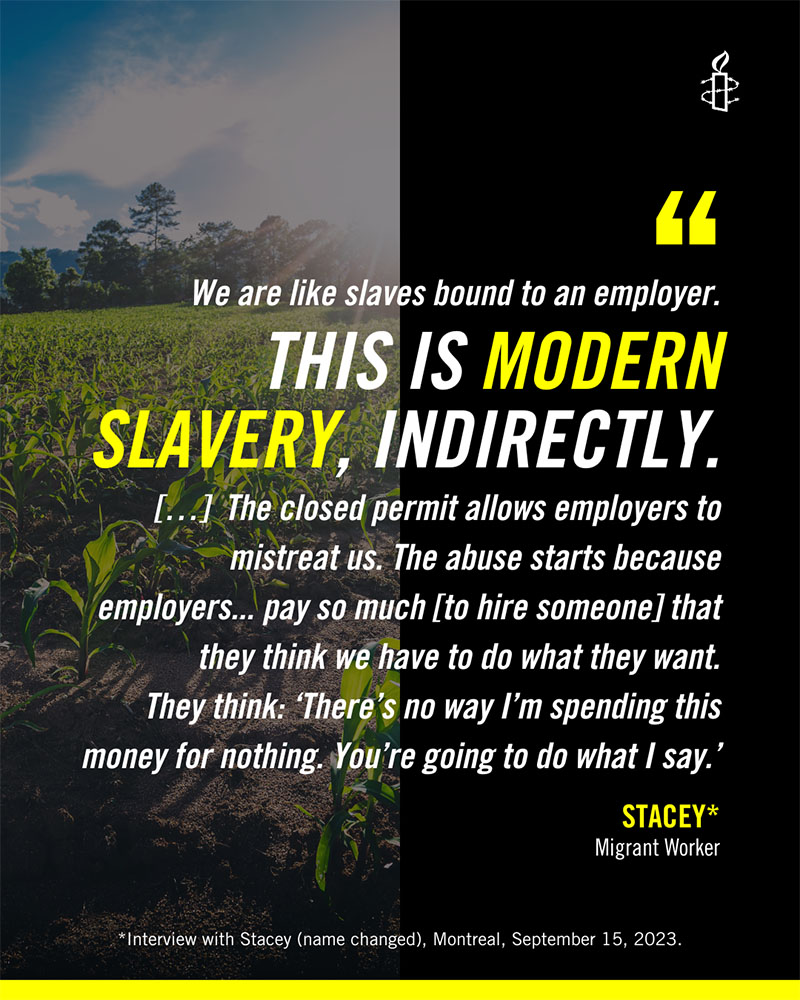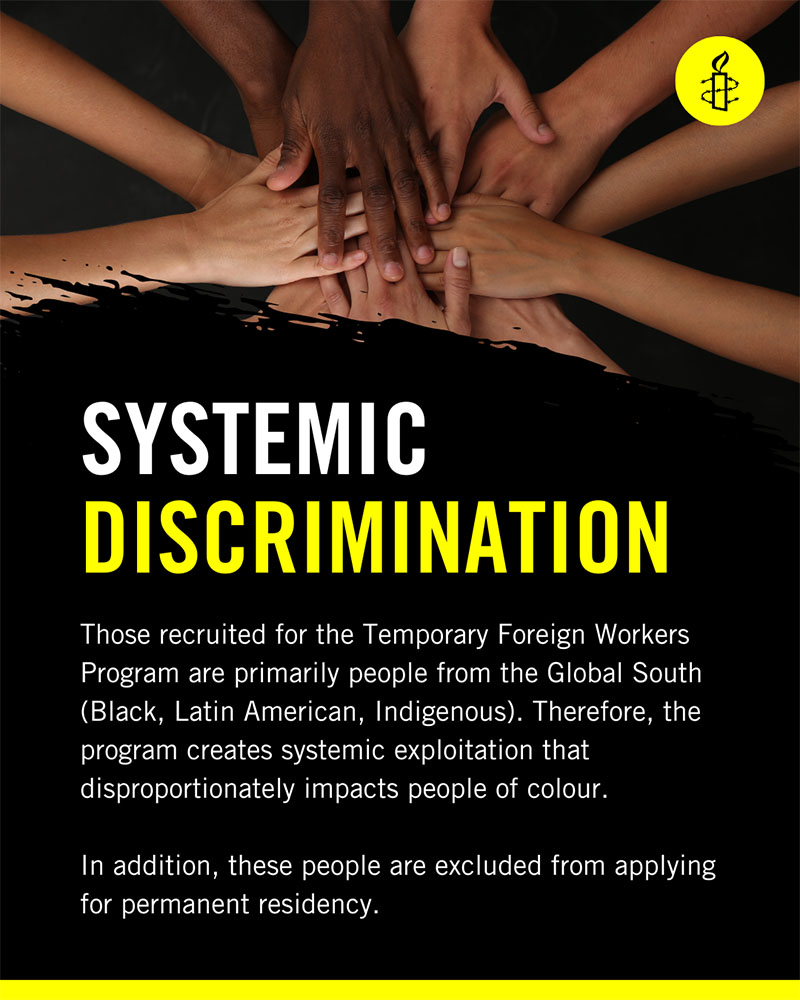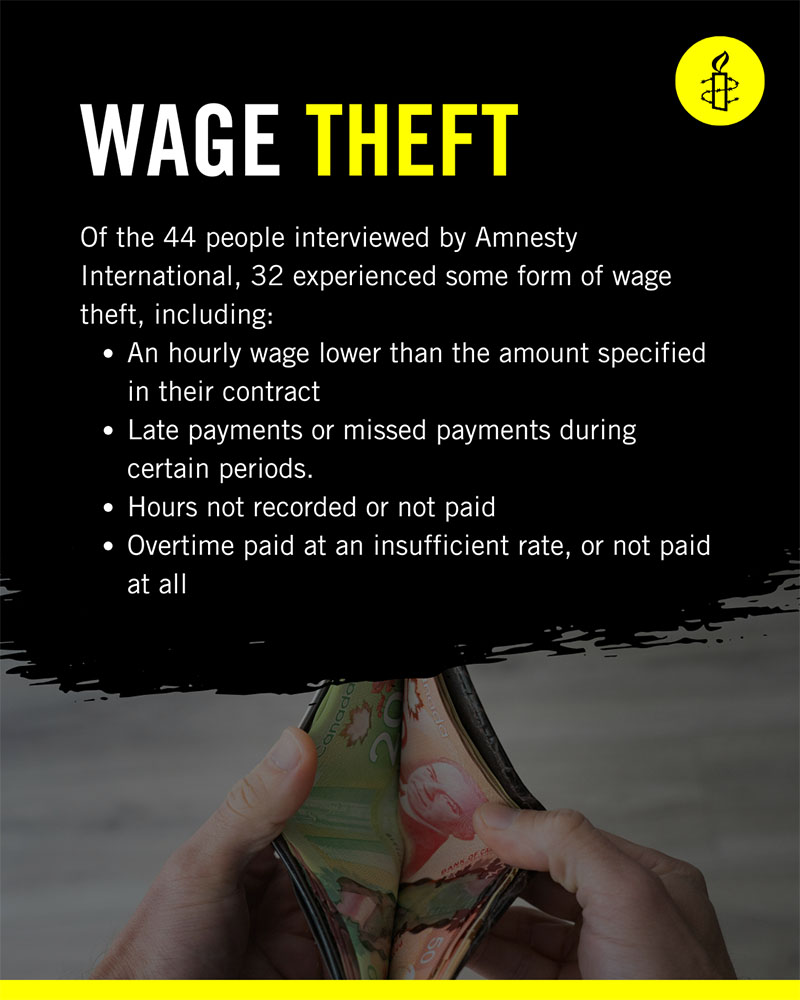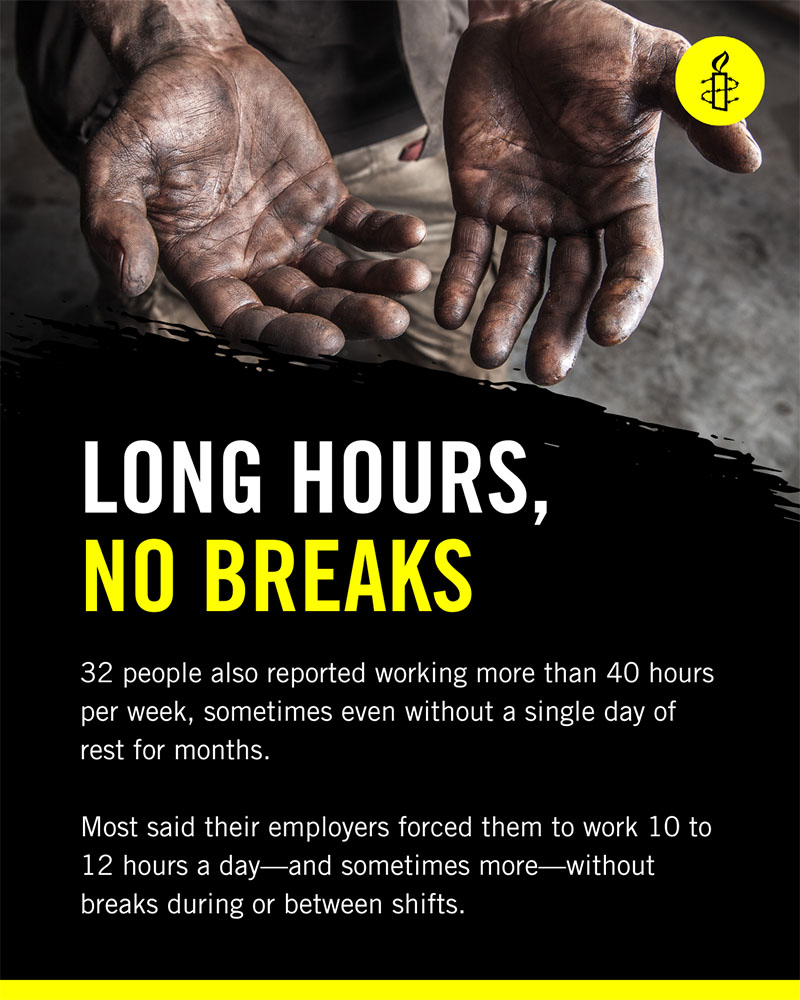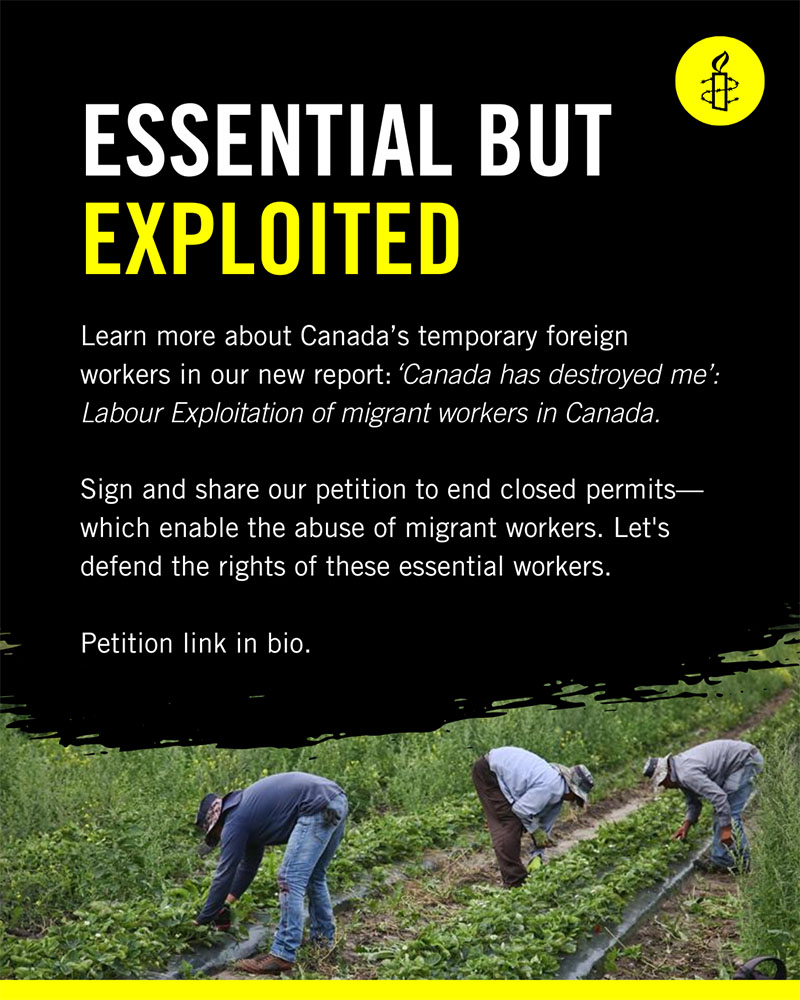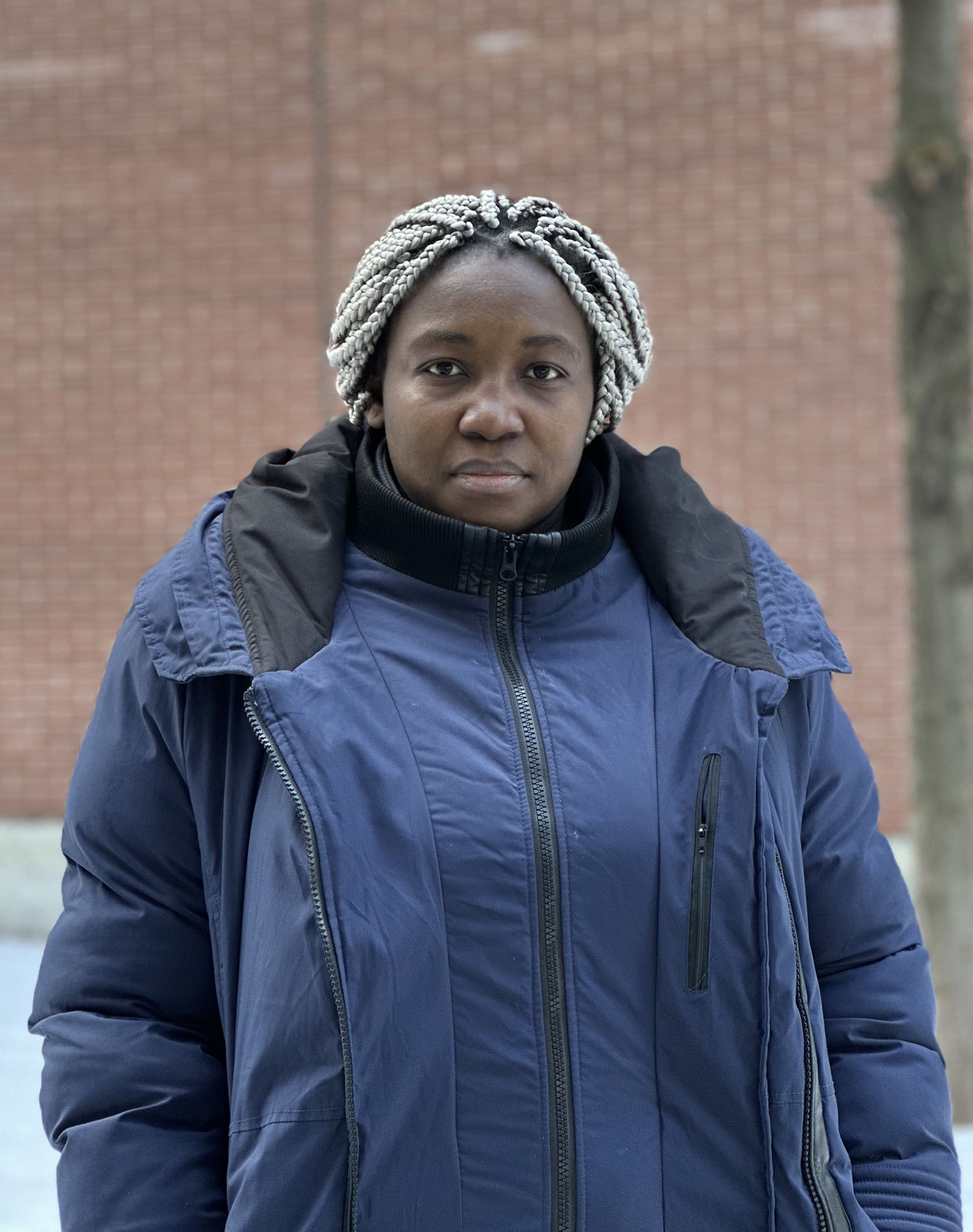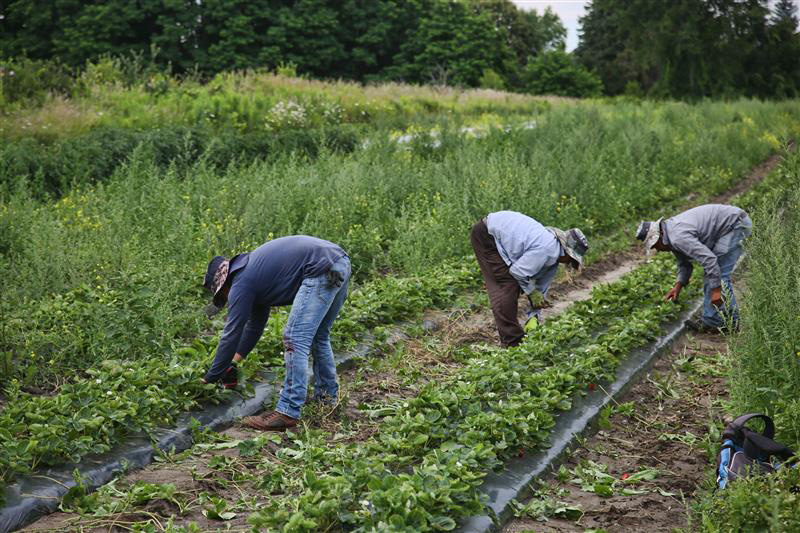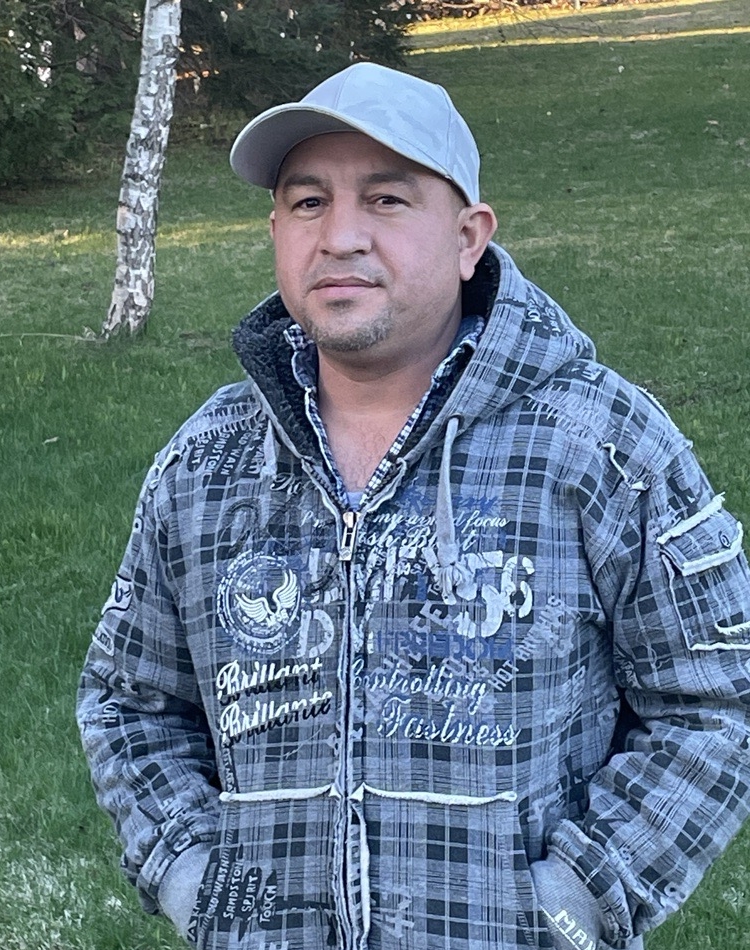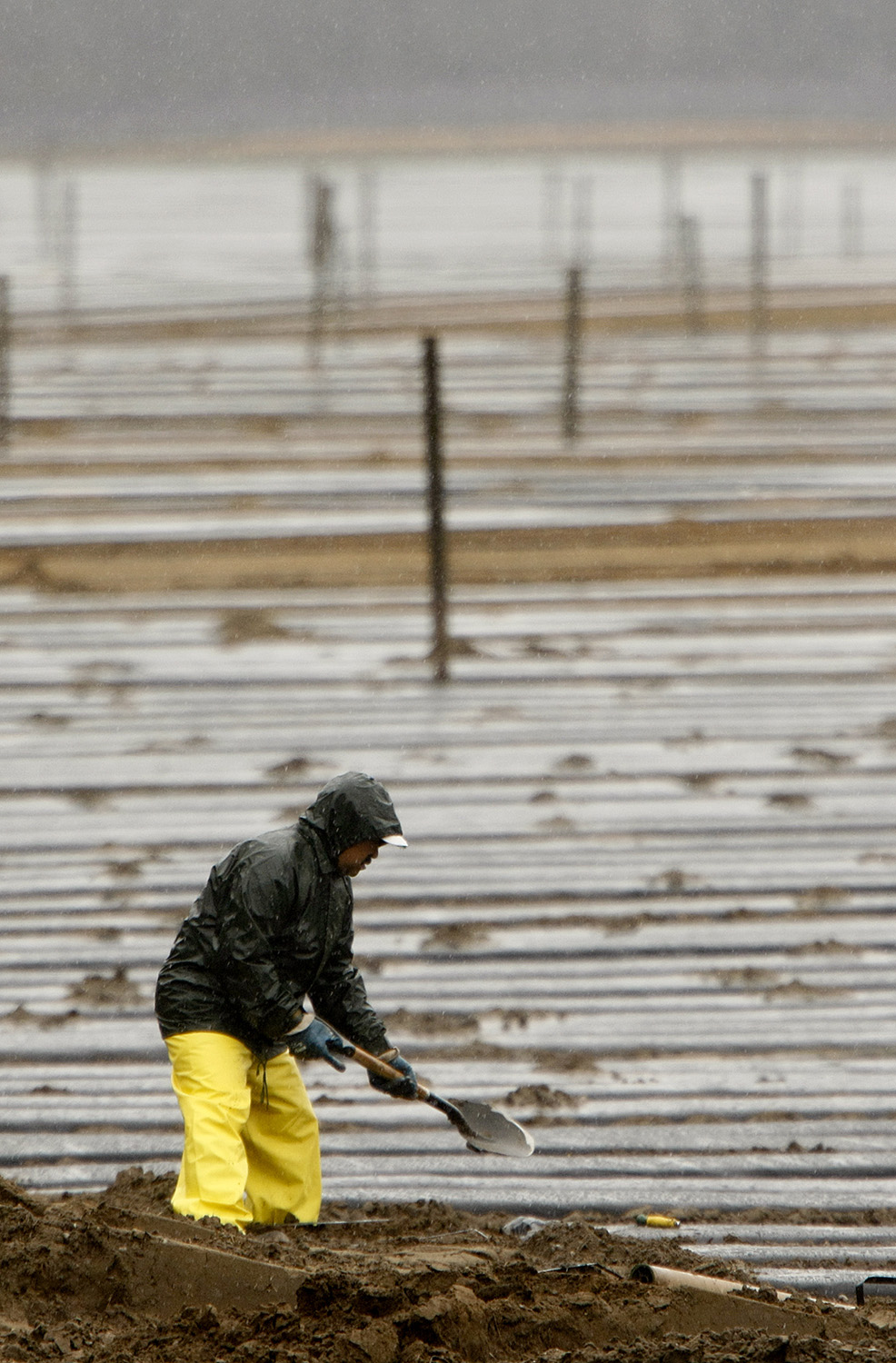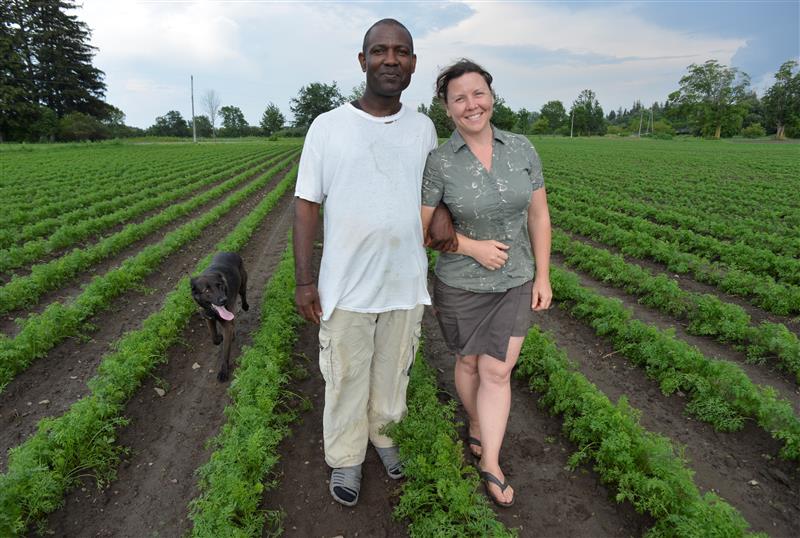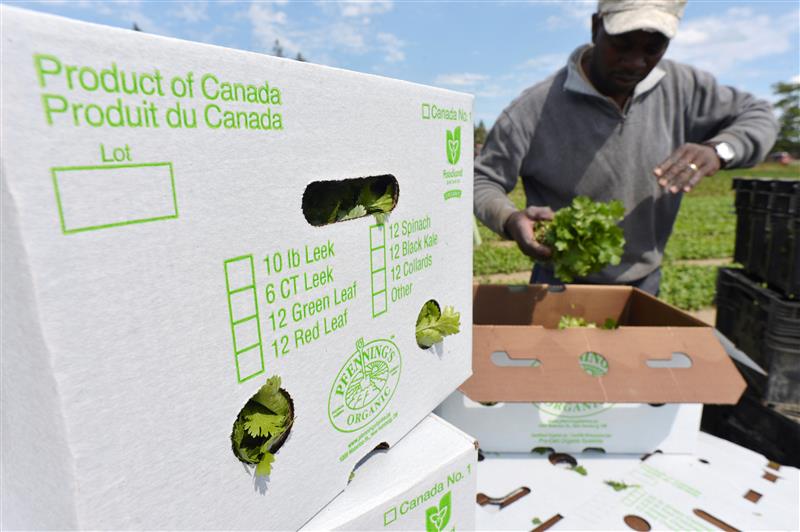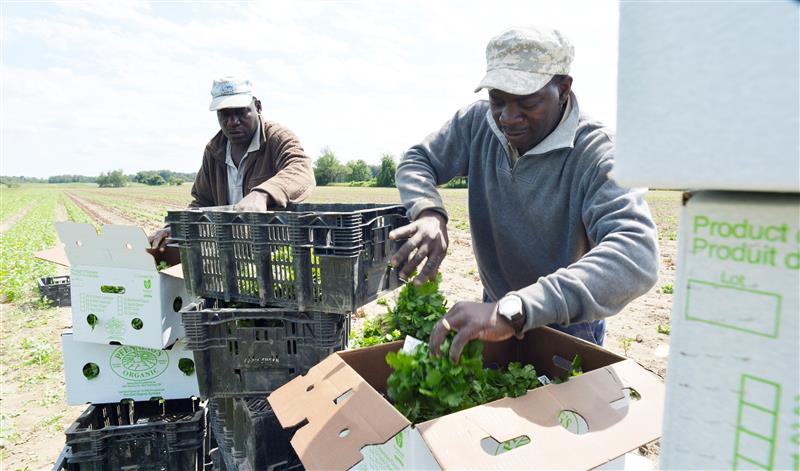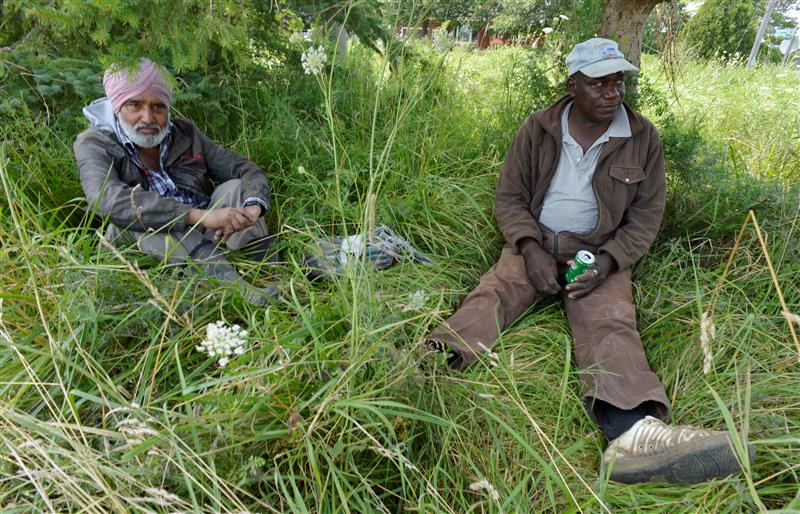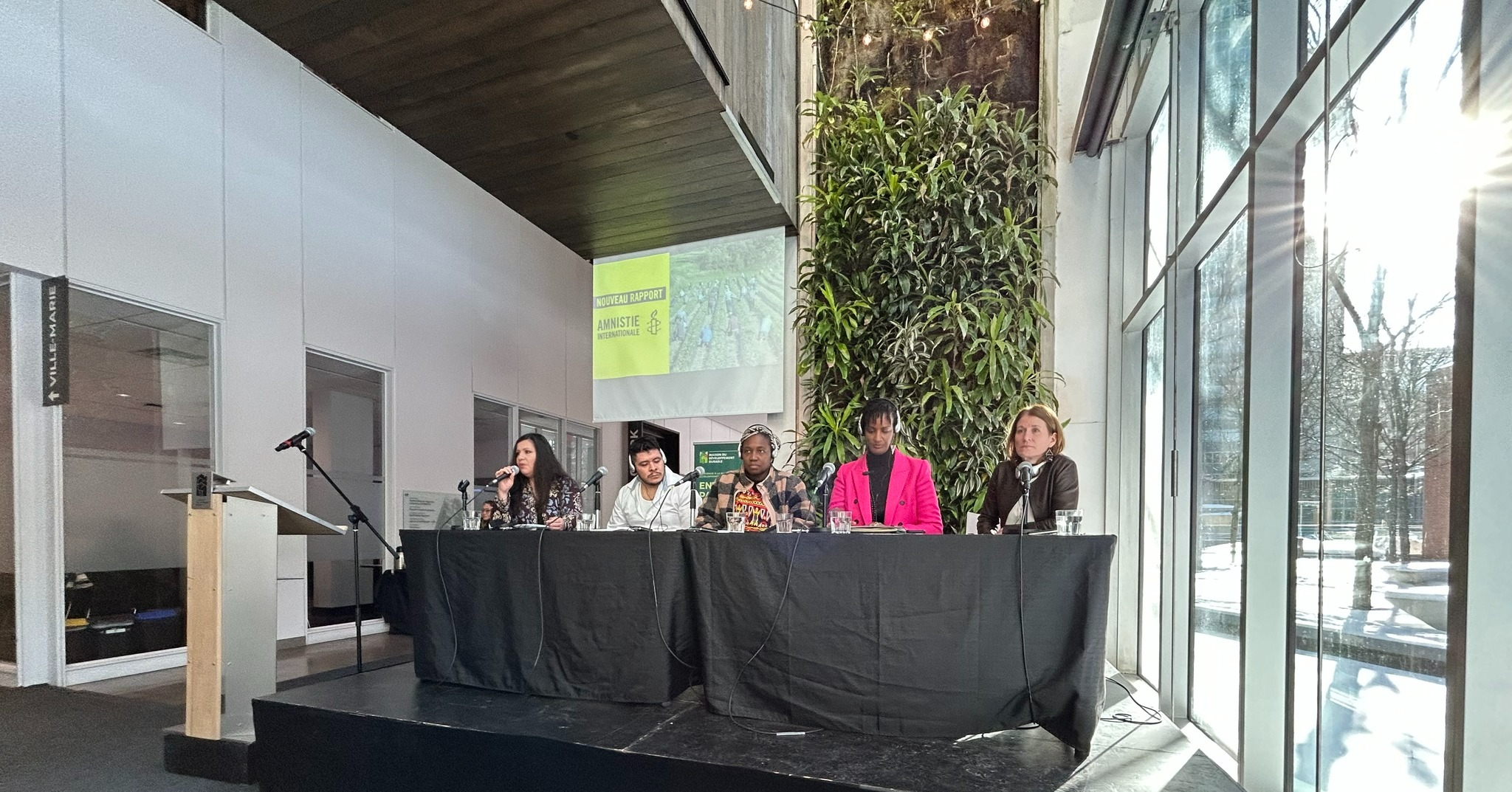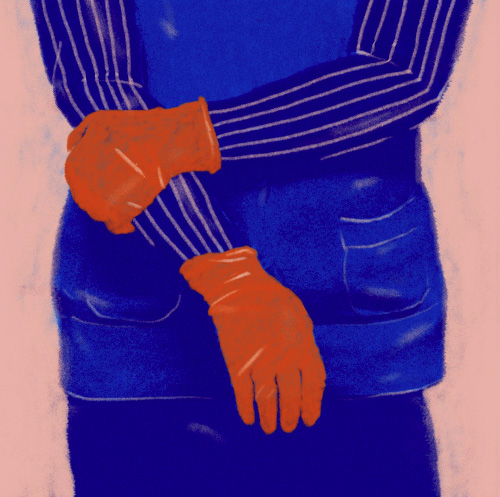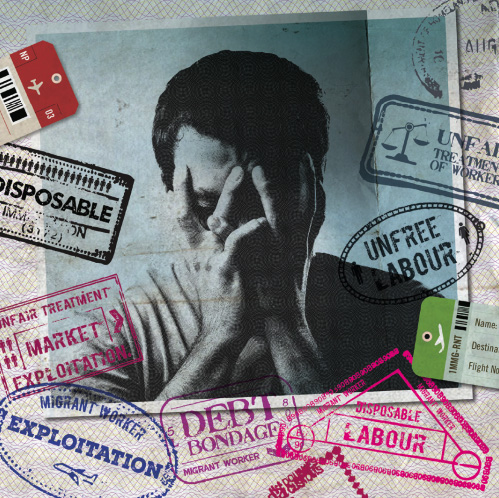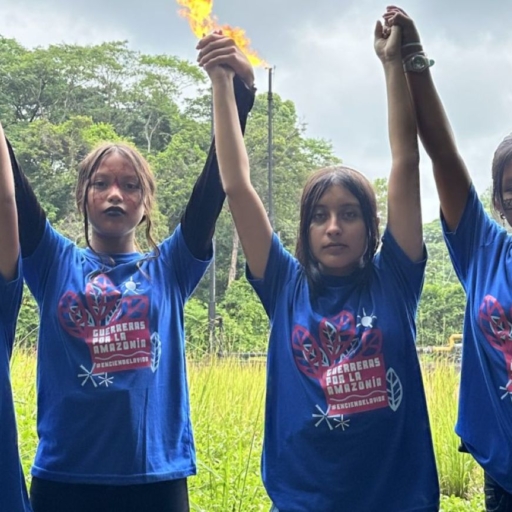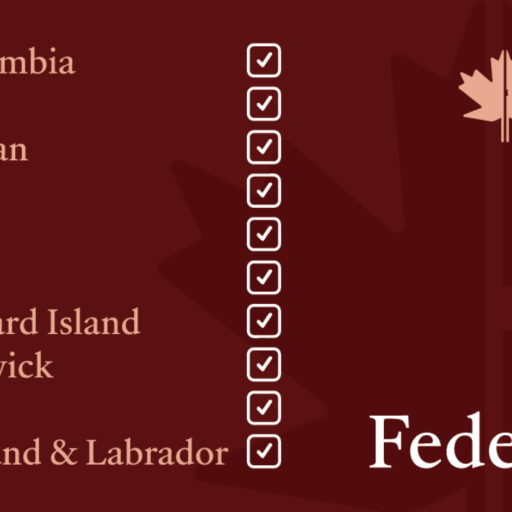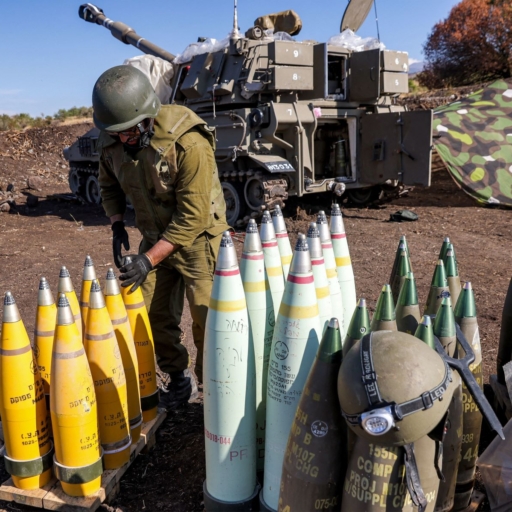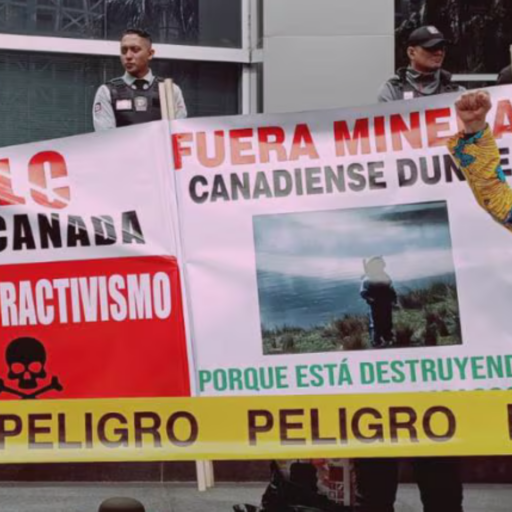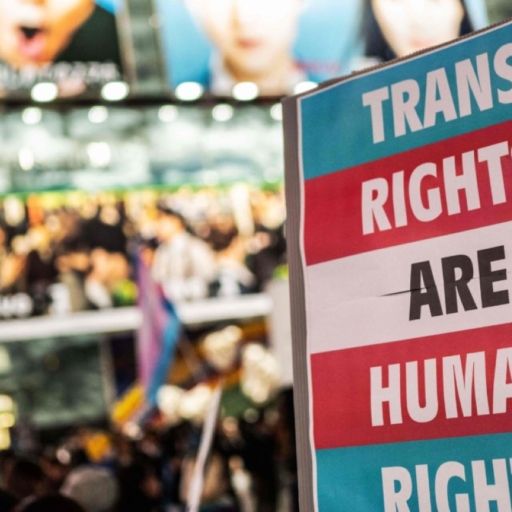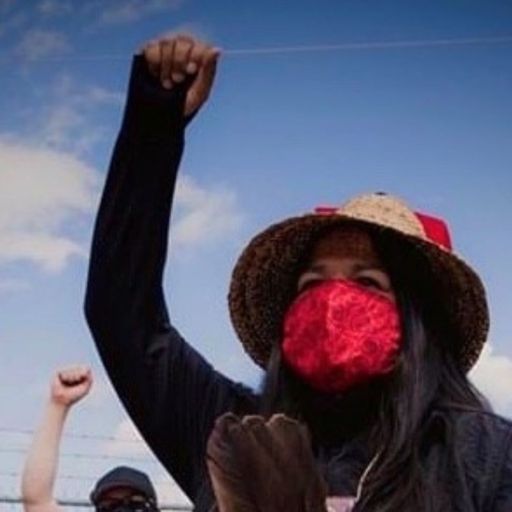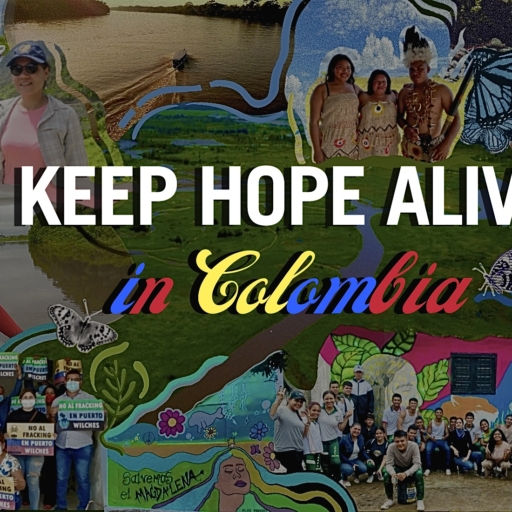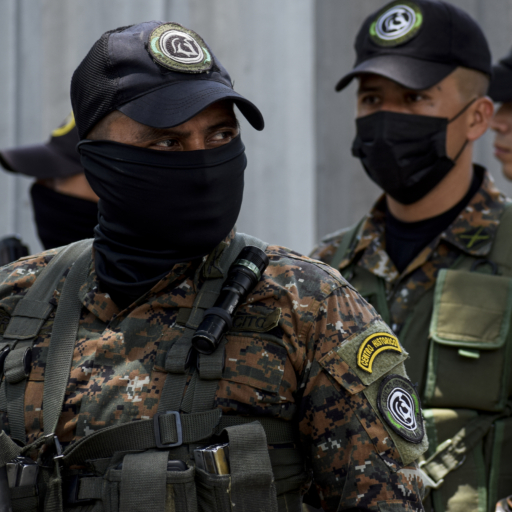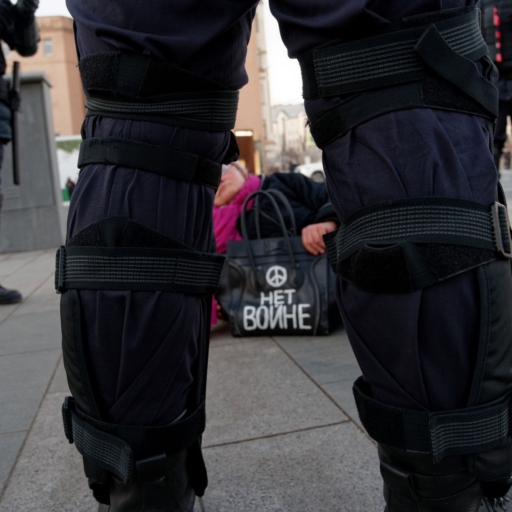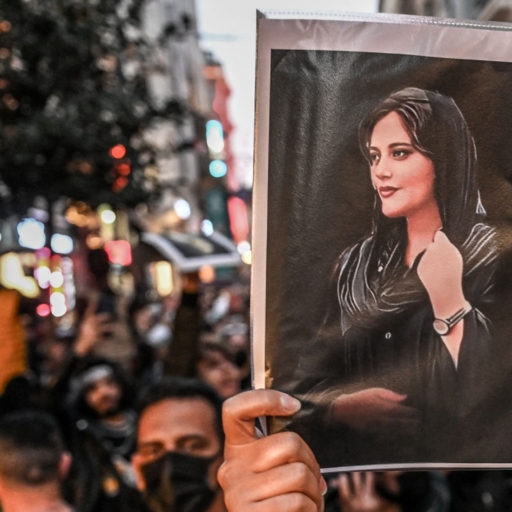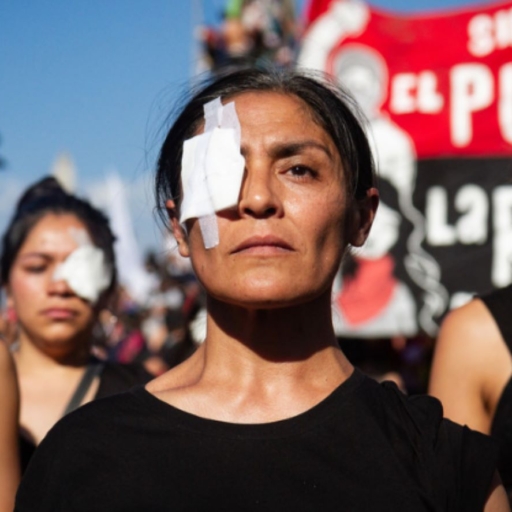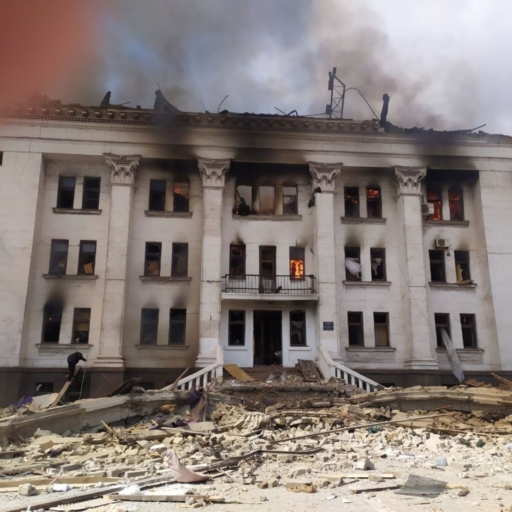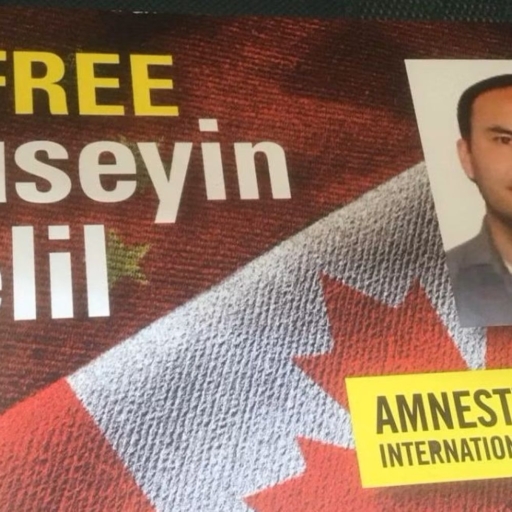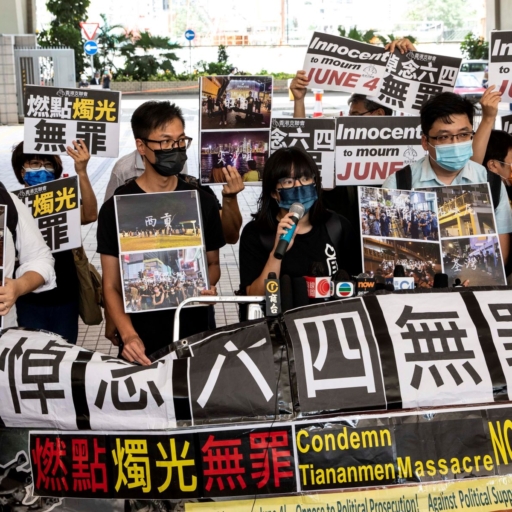Sign and share Amnesty’s online petitions
You can help stop human rights violations by participating in Amnesty International’s priority online actions. Our actions are sent directly to decision-makers and create results. You can also create momentum for change after signing our actions by participating in our social media messages and responding to our invitations to get more involved.
- Ghana: Stand with the women accused of witchcraft in Ghana
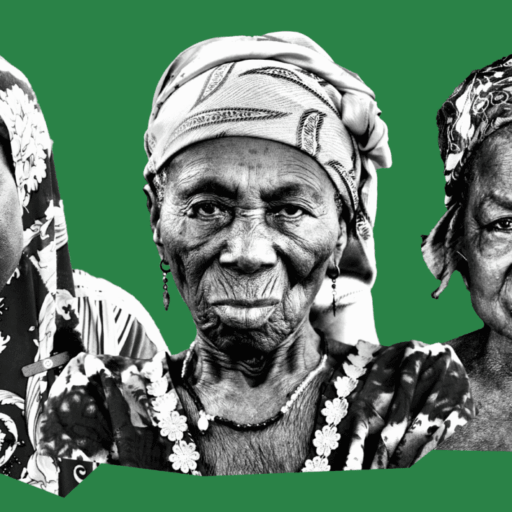
For too long, citizens, especially older women, have been victimized by witchcraft accusations in Ghana. This deeply rooted practice has led to untold suffering, discrimination, and violence. Act now to urge the President John Mahama to sign the Anti-Witchcraft Bill into law to protect these vulnerable individuals.
What’s the problem?
The tragic case of Akua Denteh, a 90-year-old woman from Kafaba in the Savannah Region, is just one of the heart-wrenching examples of the dire consequences of witchcraft accusations. On 23 July 2020, she was brutally beaten to death after being accused of witchcraft. Unfortunately, hundreds of people who have been accused of witchcraft have endured torture, been driven out of their communities to live in seclusion in camps.
These accusations are often driven by superstition, envy and old beliefs, leading to severe human rights violations and abuses. The victims, mostly older women, face brutal attacks, displacement, and social exclusion. Such acts are in stark contrast to the values of justice, human dignity, and equality that Ghana represents.
The need for legislative action
The Anti-Witchcraft Bill, which has been carefully developed through extensive consultations with various stakeholders, aims to address this grave and urgent issue. This bill seeks to:
- Make it illegal to accuse individuals of witchcraft, thus deterring such actions through stringent penalties.
- Establish protective measures and support systems for those who have been accused, including safe havens, psychological support, and reintegration programmes into society.
- Provide a clear legal pathway for victims to seek justice and compensation, thereby reinforcing the rule of law.
The bill was passed by Parliament in July 2023 but was never signed into law by former President Nana Addo Dankwa Akufo-Addo, who cited constitutional concerns.
Now the bill has been reintroduced in March 2025 and once passed should be signed into law by the new President John Mahama.
Our collective voice
We believe that signing the Anti-Witchcraft Bill into law will significantly enhance the protection of human rights in Ghana. It will also align Ghana with international human rights standards.
What you can do to help
Together, let us stand in solidarity with the victims of witchcraft accusations. Add your voice to theirs: urge the President of Ghana to sign the Anti-Witchcraft Bill into law. Your action could help bring back dignity and justice to all those that have been unfairly accused of witchcraft—a label that has stripped them of their homes, families, and dignity.
- Nigeria: Empower Survivors of Boko Haram

“I want to forget that I once lived with Boko Haram. I want to come out of this camp and start all over again.”
EE, a survivor from Maiduguri, Borno State.Girls and young women in north-east Nigeria suffered horrific abuses in Boko Haram captivity, with many survivors then unlawfully detained and neglected by the Nigerian authorities. Now, these girls and young women are sending a clear message. They want to rebuild their lives. Join this action and #EmpowerOurGirls.
- Canada: Stop Bankrolling Fossil Fuels

Fires, scorching temperatures, extreme weather, floods, and drought. We’re living a global human rights emergency of unprecedented proportions because of climate change, ecosystem damage, and political inaction on the part of governments like Canada.
Millions of lives are at risk.
The science is indisputable. Burning fossil fuels accounts for more than 70 percent of global greenhouse gas emissions and is the primary cause of climate change. We urgently need to phase out fossil fuels to have a chance of keeping global temperature rise at 1.5 degrees C to prevent the worst human rights harms.
The United Nations and international courts now recognize the legal duty to phase out fossil fuels.
Yet Canada continues to approve the expansion of fossil fuels. In fact, the fossil fuel industry has been richly subsidized by Canadian taxpayers in the form of direct financial supports, offset credits, and subsidies.
And shockingly, we pay twice: once with these financial subsidies and once again with our health and well-being. Floods, fires, drought, crop failures and the criminalization of land defenders are the price we pay for continuing to line the pockets of oil and gas industry shareholders while our communities are choked with wildfire smoke or people lose their homes to floods and fires.
But there is still time to build a future in Canada that is not reliant on fossil fuels.
There must be no more missed opportunities. Canada bears significant responsibility for climate change and must reduce its greenhouse gas emissions. At home, Canada must show leadership by urgently and equitably phasing out fossil fuels. No new projects. No expansions. Instead, Canada must invest in renewable energy, training for oil and gas workers transitioning out of the sector, and a new renewable energy infrastructure that benefits all Canadians.
Take action now and send a message to Canada’s Prime Minister: Stop financing fossil fuels!
- Demand an arms embargo in Sudan

Demand an arms embargo to stop the flow of weapons now.
The people of Sudan feel forgotten amidst spiralling violence.
Call on the United Nations Security Council to extend the existing arms embargo to the whole country and not only to Darfur region.
The ongoing conflict in Sudan between the Sudanese Armed Forces (SAF) and Rapid Support Forces (RSF) has killed tens of thousands of people and displaced over 12 million, making it the world’s largest humanitarian crisis. Those that have sought refuge in neighboring countries where live in dire conditions.
The people of Sudan feel forgotten amidst the spiraling violence across the country, where parties to the conflict are causing untold death and destruction.
Caught in the middle of fighting, they have no food, water, or access to medical services, and with limited internet, civilians have no access to information about safe passage or where to find medicine.
The warring parties have fought their war for a year with little regard for human rights and international humanitarian law.
People are being killed inside their homes, or while desperately searching for food, water, and medicine. They are caught in crossfire while fleeing and shot deliberately in targeted attacks. Women and girls, some as young as 12, have been raped and subjected to other forms of sexual violence by members of the warring sides.
Nowhere is safe. With every minute that passes countless lives are ruined. We need to act now and demand the United Nations Security Council to extend the existing arms embargo to the whole country and not only to Darfur region and ensure it is fully implemented. This will disrupt the flow of weapons and contribute to reduce civilian suffering.
Learn More
Header image: Sudanese Refugees fleeing the conflict in the Darfur region sheltering in Adre, across the border in Eastern Chad, where conditions are dire and the rainy season is in full swing. More than 150,000 have arrived since April 2023. © Amnesty International
- Canada is trying to attack our rights – fight back against Bill C-2 & C-12

There is a reason why advocates and activists focused on refugee and migrant rights, gender justice, civil liberties, and data privacy have unanimously called for Bill C-2 (and its new companion, Bill C-12) to be withdrawn: the Bills are an attack on all of us.
In June, the government of Canada tabled Bill C-2, the so-called “Strong Borders Act”. It claimed it needed to do this in response to concerns coming from the United States about things like fentanyl and firearms. The problem? It includes all sorts of provisions that have nothing to do with appeasing President Trump in tariff negotiations. Instead, it attacks refugees’ and migrants’ rights, and the privacy rights of everyone in Canada.
In response to widespread condemnation from advocates and activists, the government tabled Bill C-12 in October. However, Bill C-12 solves none of Bill C-2’s problems – it is an exact copy of the provisions attacking refugees and migrants in Bill C-2 and is simply an attempt to fast track those aspects of Bill C-2. Both Bills need to be withdrawn.
For more detail on the Bills, see below.
What can you do?
Join advocates and activists across the country – and the globe – in calling for Bills C-2 and C-12 to be withdrawn.
Step 1: Sign the Amnesty online action, and share it with your friends, family, and community.
Step 2: To help sustain the pressure, sign onto other actions hosted by partner organizations, which can be found here.
Step 3: Contact your MP, express your concerns, and call on them to push to have the Bill withdrawn.
- To find your MP, enter your postal code here.
- When writing to, calling or meeting with your MP, it is important to explain that you live in their riding, and to talk about what the Bill means to you and your neighbours and why you want it withdrawn. See below for further explanation on some of the worst provisions of the Bill. Other resources and FAQs can also be found here.
- Ask for their thoughts about the parts of the Bill that you’re most concerned about.
- Ask if the MP will take action by pushing to have the Bill(s) withdrawn or voting against them.
- Don’t be afraid to follow up.

The Supreme Court of Canada released its ruling on the constitutional challenge to the Safe Third Country Act on Friday, June 16, 2023. Key Concerns Regarding Bill C-2 and C-12
Bills C-2 and C-12 stop people from having their claim for refugee protection fairly assessed
Under the current system, refugee claimants go before independent decision makers at the Refugee Protection Division (RPD) of the Immigration and Refugee Board, and have the right to a hearing and appeal. Canada is trying to take some people out of this system by preventing their claims from being heard by the RPD. Instead, people would only be eligible for a Pre-Removal Risk Assessment (PRRA) – this means that their claims would not be heard by independent decision makers but by government employees without the same expertise or training.
Refugee claimants pushed into this lesser system would not have the right to a hearing or an appeal. This would put people at higher risk of being deported to face things like torture and persecution, simply because their claims for protection were not fairly assessed.
If Bill C-2 or C-12 passed, then someone who first entered Canada more than one year ago – even if they came here for one day as a baby in 2020 and then returned 20 years later, or even if their circumstances had changed since they first arrived in Canada – would be pushed into the lesser PRRA system (without the right to a hearing or the same protections). Some asylum seekers who come to Canada via the United States would also be pushed into the lesser PRRA system.
Bills C-2 and C-12 would grant the government the power to cancel immigration documents for groups of people without due process
The government is trying to give itself the ability to issue blanket cancellations of immigration documents, including things like permanent resident visas and work and study permits, simply because they believe it is in the “public interest”.
The government would not need to conduct any individualized assessment, and people would not be entitled to any due process. Instead, with a simple order, the government could pull the rug out from our friends and neighbours who have been building their lives here in Canada.
Bill C-2 and C-12 would allow the government to share personal information with foreign governments
The Bills would enable the government to share private information held by the immigration department with other governments. This is a terrifying prospect for many, including those who have fled persecution from another government.
Bill C-2 is an attack on privacy rights.
Bill C-2 would expand police and spy agencies’ ability to access our data and allow Canada Post to open our mail. It would also enable our government to share our personal information with foreign governments. While the government cut out some of the attacks on privacy rights in Bill C-12, these attacks remain in Bill C-2, which has not been withdrawn.
- Disappearances in Mexico: Protect Women Searchers

Forty people disappear every day in Mexico. This is a crisis.
At the forefront of the search for the missing and disappeared are the women searchers. With their own hands, using picks and shovels, they locate clandestine graves and gather evidence.
Thousands of women take on the work the state refuses to do, without protection, rest or guarantees. For daring to search, they are stigmatized and revictimized.
The Mexican government must ensure that women searchers can continue their work without fear of reprisals and with dignity.
- Taking Action for Workers’ Rights

During the week of September 22, people across Canada are coming together to demand change. We believe that all workers, regardless of where they come from, should be treated with dignity and have their rights respected.
This is not the reality that many migrant workers in Canada face. Although migrant workers carry out essential work in agriculture, care, hospitality, construction, and many other industries, they are not treated the same as Canadians doing this work. Under the Temporary Foreign Worker Program (TFWP), people cannot freely change their employer, even if they are being mistreated and abused. They are trapped by their closed work permit!
This would never be accepted for Canadians, and it should not be accepted for anyone.

Migrant workers remove weeds surrounding strawberries plants at a farm in Markham, Ontario, Canada, on July 30, 2023. (Photo by Creative Touch Imaging Ltd./NurPhoto via Getty Images) Days of Action
During the week of September 22, migrant workers, activists, grassroots organizers, unions, and human rights organizations are taking action across the country to call for an end to closed work permits, which trap workers by limiting their ability to freely change their employer. Instead, we are calling on the government to grant workers open permits.
The goals of the days of action are to:
- Increase awareness among the public of the need to reform the TFWP, so that all workers in Canada can enjoy the basic right to choose and change their employer
- Pressure the government to abolish closed work permits and instead grant all workers open work permits
- Gather signatures for our petition, so the government knows that people across the country are demanding change

What can you do
Join an event taking place during the Days of Action. This page will be updated frequently as additional events are planned – please reach out to activism@amnesty.ca to have your event added to the list:
Ottawa: Wednesday, September 17 at 6 PM: Film screening of My Friend Omar at the Amnesty Ottawa Offices.
Monday, September 22 at 6 PM: symbolic action on Parliament Hill. You can find more details here.
Plan your own event during the week of September 22
There are so many ways to get involved, spread the word, and make your voice heard. For all events, be sure to include an action that people can take to let the government know that they are demanding change. It can be as simple as having people sign the online petition, writing letters to the government, or calling your MP.
We are hoping that events can be planned during the days of action for a coordinated, cross-country effort, but these events can also be planned at any time!
Please reach out to activism@amnesty.ca for support and to tell us about your event, so that we can promote it!
You can:
Plan a film screening of My Friend Omar
My Friend Omar unveils the persistent abuses that migrant workers experience and highlights Omar’s fight for justice in a system that makes so many workers invisible.

Invite friends, family, and community members to watch the documentary with you and encourage them to sign the petition or write to their MP after watching the movie. The film screening can be as big or small as you’d like – you can invite people over to watch it with you, or plan a larger event at a community centre, school, or place of worship.
For more information on how to host a film screening, including how to access the film, how to promote the event, sample discussion questions and information on the Temporary Foreign Worker Program, please access the discussion guide here.
Host a petitioning/tabling event in your community
Pick a busy spot within your community (parks, farmers’ markets, community events, etc.) and set up a table with information on the Temporary Foreign Worker Program and gather signatures for the petition. See the resources section for resources you can use at the table, including a print petition, briefing note, and a document that suggests some key points to highlight in letters to the government.
Creative activism
Come up with your own creative or artistic way to raise awareness, engage with groups and collectives in your area, and inspire others to take action. Possibilities include postering in your neighbourhood, hosting an informational webinar at your school, creating a participatory mural of why people want open work permits, etc.

© Colin Foo Examples of actions that people can take at your event
- Sign the petition: people can sign the online petition or download a print version of the petition (see below in “resources”)
- Write a letter to their MP: an example of what to include in a letter can be found in “resources” below.
- Call your MP to:
- Express concern about the abuses that migrant workers face in the TFWP
- Tell them you expect Canada to respect the rights of ALL workers
- Call on them to abolish closed work permits and ensure that everyone has the right to choose and change their employer
The following document contains a sample script and some responses to some frequently asked questions: Call your MP Guide
Resources
Background on the TWP
CLICK HERE for more information on Temporary Foreign Worker Program, including testimony from workers, an overview of the program and the rights abuses that workers are subjected to, Amnesty’s research report, Amnesty’s reports on migrant workers in other countries, and frequently asked questions.
- Release Dr. Hussam Abu Safiya

Dr. Hussam Abu Safiya, director of Kamal Adwan hospital and a prominent voice of Gaza’s decimated healthcare sector, is still being arbitrarily detained by Israeli authorities since his arrest on 27 December. A lawyer who visited him and other detainees, recently reported that he has been subjected to abuse and other ill-treatment. Join us in demanding his immediate and unconditional release.
- Lift the Blockade on Gaza. Stop the Genocide.

Palestinians in Gaza face an impossible choice: starve or risk being shot while trying desperately to reach food to feed their families.
Two months on from the launch of the Israeli government-controlled scheme, the Gaza Humanitarian Foundation, massacres at food distribution sites are happening almost every day. According to the United Nations, over 1,000 Palestinians have been killed while seeking food, including on aid routes and at distribution points. Thousands more have been injured.
The blockade of Gaza must end. UN-led humanitarian aid must be immediately restored.
- Break the Silence. End Human Rights Violations in Afghanistan.

Over four years into the Taliban rule, the country remains a hotbed of unchecked and unabated human rights abuses – gender persecution, torture, arbitrary detentions, and censorship – all with zero accountability. The world’s response? Tepid at best.
Since the Taliban seized power in 2021, Afghanistan has been in a downward spiral of human rights violations. Women are banned from all aspects of life, abuses like torture and ill-treatment, arbitrary detentions, enforced disappearances, censorship, among others, continue with absolute impunity. Severe restrictions on right to freedom of expression, peaceful assembly, and political participation of women have gone unchecked. The return of corporal punishment and absence of an independent judiciary further exacerbates these issues, leaving victims without any recourse to justice.
Even as the people of Afghanistan remain stuck in this endless nightmare, the international community has failed to take any meaningful action.
Strong words won’t stop this repression; strong action will. Governments around the world must step up to put an end to this cycle of repression.
- Tell President Trump: No Mass Deportations!

Within hours of his inauguration on January 20, 2025, US President Donald Trump declared an emergency at the southern border, suspended the US Refugee Admissions Program, and reiterated a mass deportation plan targeting millions of immigrants and people seeking safety. This cruel campaign is spreading fear, throwing people into arbitrary detention, returning people to harm, separating families and tearing apart communities.
- Stop the Execution Spree in Iran

Since the Woman Life Freedom uprising, Iranian authorities have doubled down on their brutal use of the death penalty.
thousands at risk of execution
Urge the international community to press Iran establish an official moratorium on executions with a view to fully abolishing the death penalty
Since the Woman Life Freedom uprising, Iranian authorities have doubled down on their brutal use of the death penalty as a tool of oppression to terrorize the public and tighten their grip on power. Prisons have become sites of mass state-sanctioned killings. In 2023, executions soared with over 853 people executed, a 48% increase from 2022 and the highest number for eight years. This arbitrary deprivation of people’s lives must stop.
The spike in executions is largely attributed to the return of a lethal anti-narcotics policy since 2021. Authorities carried out over 481 drug-related executions in 2023, marking a 89% increase from 2022 and 264% increase from 2021.
The death penalty is also used to target oppressed minority groups. Iran’s oppressed Baluchi ethnic minority, who constitute only about 5% of Iran’s population, accounted for 20% of all executions. Individuals were also executed for their social media posts and for sexual relations between consenting adults.Iranian authorities are using the death penalty as a tool of political oppression to sow fear among the public and deter further nationwide protests. In 2023, they executed 7 people in connection to protests after grossly unfair sham trials.
Iran’s killing spree is continuing into 2024, with at least 95 recorded executions by March 20. Execution numbers recorded by Amnesty International are minimum figures and the organization believes the real number is higher.
On July 27, 2025, political dissidents, Behrouz Ehsani and Mehdi Hassani were executed in secret without notice to them or their families in Ghezel Hesar prison in Karaj, Alborz province. The executions took place after a grossly unfair trial by a Revolutionary Court. They were denied access to their lawyers for nearly two years before a trial that lasted only five minutes and during which they were not allowed to speak in their own defense. Forced ‘confessions’ extracted through beatings, prolonged solitary confinement and threats to further harm them and their families were used as evidence to convict them.
Learn More
Iran executes 853 people in eight-year high amid relentless repression and renewed ‘war on drugs’ (April 4, 2024)
Iran: Prisons turned into killing fields as drug-related executions almost triple this year (June 2, 2023)
Iran: Executions of tortured protesters must trigger a robust reaction from the international community (May 19, 2023)What else you can do
Write a personal letter to Iranian authorities based on the April 4, 2024 Urgent Action: Drug-related executions surging in Iran.
Top image © Signs criticising the Iranian Islamic Regime’s use of the death penalty are seen in Trafalgar Square on September 16, 2023 in London, England. Photo by Leon Neal/Getty Images.
- Temporary Foreign Workers Report

Abuse is systemic in Canada’s Temporary Foreign Worker program, Amnesty International finds
Read full report(Photo by Tara Walton / Toronto Star via Getty Images)
Share:
Canada
‘Canada has destroyed me’: Labour exploitation of migrant workers in Canada
JANUARY 30, 2025
The design of Canada’s Temporary Foreign Worker Program (TFWP) exposes labourers from the Global South to shocking abuse and discrimination, Amnesty International charges in a new report.
Released on Thursday, ‘Canada has destroyed me’: Labour exploitation of migrant workers in Canada [PDF] criticizes the structure of the TFWP, which allows employers to hire migrant workers, primarily for low-paid jobs, across various sectors, including agriculture, food processing, the care system, construction and hospitality. TFWP work permits tie workers to a single employer who controls both their migration status and labour conditions.
As Amnesty International’s report details in-depth, despite recent minor changes to the program, labourers in the TFWP will be vulnerable to abuse as long as the closed work permit requirement and other harmful provisions remain. In total, the report recommends 32 actions that federal, provincial and other authorities must take to eliminate abuse in the system and ensure victims can access justice.
“Exploitation, discrimination and abuse are integral features, not bugs, of the Temporary Foreign Worker program,” said Ketty Nivyabandi, Secretary General of Amnesty International Canada’s English-speaking section. “Cosmetic changes are not enough. Our leaders must implement the reforms required to bring the program in line with Canada’s human rights obligations – and, ultimately, to respect the rights of workers.”
“Every year, thousands of people from around the world leave their homes and their families to carry out essential jobs in Canada,” said France-Isabelle Langlois, Executive Director of Amnistie internationale Canada francophone. “Rather than receiving a warm welcome, some are met with unsafe working conditions, racist intimidation and threats, sexual harassment and physical violence. We applaud the 44 workers who courageously shared their stories with us, and we thank them for their efforts to expose appalling human rights abuses taking place in our own backyard.”
Many migrant workers have told us they came to Canada hoping to secure a better future, yet instead, they felt they were treated like slaves. These workers are vital for putting food on the country’s tables and caring for the elderly. They deserve much better.
Erika Guevara-Rosas
Senior Director for Research, Advocacy, Policy and Campaigns at Amnesty International Download full report
Download full report

Bénédicte
Migrant Worker
View story
Miguel
Migrant Farm Worker
View story







Essential but exploited
The report’s findings are based on in-depth interviews and desk research conducted between February 2023 and June 2024, involving a total of 44 migrant workers from 14 countries. Amnesty International selected the interviewees based on referrals from partner organizations and in a few instances, from other workers interviewed by the organization.
“The abuse experienced by migrant workers in Canada is deeply troubling, especially for a country that claims to be a leader when it comes to protecting human rights,” said Erika Guevara-Rosas, Senior Director for Research, Advocacy, Policy and Campaigns at Amnesty International. “Many migrant workers have told us they came to Canada hoping to secure a better future, yet instead, they felt they were treated like slaves. These workers are vital for putting food on the country’s tables and caring for the elderly. They deserve much better.”
Read full report
Exploited and abused
Bénédicte, a woman from Cameroon, suffered racist psychological and sexual abuse at the hands of her employer as soon as she arrived in Canada in 2016 with a two-year closed work permit to work on a farm. She was made to work 70–80-hour weeks performing tasks including domestic work, was substantially underpaid, and was constantly controlled. Her employer deceived her, promising to bring her children to Canada, to continue exploiting her. She eventually fell sick and was diagnosed with severe anaemia. When she finally left the farm in July 2018, her employer cancelled her work permit, leaving her with an irregular migration status. “I did not expect to be a slave here,” she told Amnesty International.
Most of the 44 workers interviewed by Amnesty International reported unpaid wages and excessive working hours. Some contracts seen by Amnesty International stipulated zero rest days. Some workers reported being subjected to racist language by their employers and supervisors, including being called “donkey,” “Indian,” or “shitty Mexican.”
A Jamaican woman said her supervisor told her to “go back to the tree you came from,” and a few reported being physically assaulted by their employers. Many lived in inadequate housing, and a few said they did not have drinkable water in their accommodation. Some workers suffered severe injuries or developed medical conditions as a result of unsafe working conditions. Workers reported being threatened with repatriation by their employers and, in a few cases, were taken to the airport against their will.
Many workers reported suffering discrimination at work, including by being tasked with the hardest physical jobs, which they could not refuse. Women reported gender-based violence and discrimination.
For instance, Hélène and Sylvie (not their real names), two Ivorian nationals working in a nursing home, told Amnesty International they had to commit to paying the recruitment fees incurred by their agency in Ivory Coast and the employer in Canada in case they failed to comply with their “commitments.” These included not being pregnant at the time of departure, not getting pregnant and not abandoning the employment before their two-year contract ended.

Migrant workers remove weeds surrounding strawberry plants at a farm in Markham, Ontario on July 30, 2023. (Photo by Creative Touch Imaging Ltd./NurPhoto via Getty Images)
Threatened and surveilled
Miguel, a Guatemalan migrant worker with a two-year visa under the TFWP, faced severe forms of control by his employer.
Miguel was promised a 40-hour work week, $13.50 per hour, free accommodation, and the possibility of bringing his family to Canada in the future. However, when he arrived in Canada, he worked between 60 and 72 hours per week without adequate rest or compensation.
His boss confiscated his passport and placed cameras inside and outside the container where he lived and the garage where he worked. Threats and other forms of verbal abuse were also frequent, including threats to send him back to Guatemala. Sometimes, he would enter Miguel’s room uninvited, ordering him to “Come on, get to work.”
Miguel decided to gather evidence of his situation and report it to his recruitment agency. When his employer found out, he ended his contract early and drove him to the airport. Miguel never got on the plane. Instead, he reported the abuse he suffered to the police.

Activism Resources
.cls-1 { stroke-width: 0px; }Social Media Graphics
Download and share social media graphics
Download AssetsAmnesty Icons Migrant Worker Interviews
Download and share interviews from migrant workers.
Download Assets
Coming SoonNo adequate remedy for abuses
Many workers fail to report the abuses they suffer out of fear of reprisals, including unfair dismissal, non-renewal of their contract, and repatriation. Those who do complain are faced with Canada’s complex enforcement system, which is not designed to protect individuals with precarious status. These individuals often don’t have time to engage in proceedings or may not be able to navigate bureaucratic systems in either of Canada’s official languages.
For example, Walter (not his real name) arrived in Canada to work in agriculture on a two-year closed work permit, but was subjected to long working hours and was not provided with the necessary protective equipment. He was also banned from eating, drinking or taking a break except during transportation.
My work permit and work almost killed me … If we did not obey, we would be deported.
Walter
Migrant WorkerEventually, the owner of an unauthorized placement agency deceived Walter and several of his co-workers into believing he could help them change jobs lawfully. For a year, he lived in the basement of the owner of the placement agency and was not allowed to leave except to work on jobs that the agent arranged for him.
“My work permit and work almost killed me … If we did not obey, we would be deported,” he told Amnesty International.
Walter has not yet received adequate redress for the severe abuses he suffered.

A migrant farm worker prepares a field in the rain on April 28, 2009, in Vittoria, Ontario. (Photo by Tara Walton/Toronto Star via Getty Images)
Systemic discrimination
Unlike other temporary labour schemes in Canada, TFWP closed work permits don’t allow migrants to change employers. TFWP work permits are mostly granted to “low-skilled” workers from low- and middle-income countries in the Global South, with a majority of Black, Latin American and other racialized populations. In 2023, the top countries of origin of TFWP workers were Mexico, India, Philippines, Guatemala and Jamaica, together representing almost 70% of the work permits granted.
Number of closed permit holders in 2023 0 + Of workers in the Canadian agricultural sector were migrants in 2022 0 % Of migrants came from Mexico, India, Philippines, Guatemala and Jamaica in 2023 0 % Migrant workers Amnesty International interviewed 0Moreover, “low-skilled” racialized workers are subjected to a high risk of labour exploitation for long periods of time, as many continue travelling to Canada year after year, with little prospect of obtaining a more secure status, due to Canada’s immigration system which privileges “high-skilled” workers for permanent residence.
“The reality is that labour exploitation is a foreseeable and systemic result of closed work permits,” said Erika Guevara-Rosas, Senior Director for Research, Advocacy, Policy and Campaigns at Amnesty International. “Any reform that fails to abolish closed work permits and replace them with open work permits fails to address the root causes of the abuses and will fall short of complying with Canada’s international human rights obligations. Migrant workers should have the freedom to change jobs and employers, just as Canadians are.”

Jennifer Pfenning and farm worker Gabriel Allahdua stand in a carrot patch at Pfenning’s Organic Farm in New Hamburg, Ontario, on August 28, 2018. (Photo by Jim Rankin/Toronto Star via Getty Images)

Desmond Daley from Jamaica packs freshly cut cilantro at Pfenning’s Organic Farms in New Hamburg, Ontario, on August 28, 2018. The owners would like to see their Jamaican migrant workers given open work permits that allow them to change employers easily. (Photo by Jim Rankin/Toronto Star via Getty Images)

Conroy Sterling, left, and Desmond Daley, both from Jamaica, pack freshly cut cilantro at Pfenning’s Organic Farms in New Hamburg, Ontario on August 28, 2018. (Photo by Jim Rankin/Toronto Star via Getty Images)

Conroy Sterling, right, from Jamaica, takes a break beside a fellow farm worker from Canada at Pfenning’s Organic Farms in New Hamburg, Ontario, on August 28, 2018. (Photo by Jim Rankin/Toronto Star via Getty Images)

Jennifer Pfenning and farm worker Gabriel Allahdua stand in a carrot patch at Pfenning’s Organic Farm in New Hamburg, Ontario, on August 28, 2018. (Photo by Jim Rankin/Toronto Star via Getty Images)

Desmond Daley from Jamaica packs freshly cut cilantro at Pfenning’s Organic Farms in New Hamburg, Ontario, on August 28, 2018. The owners would like to see their Jamaican migrant workers given open work permits that allow them to change employers easily. (Photo by Jim Rankin/Toronto Star via Getty Images)

Conroy Sterling, left, and Desmond Daley, both from Jamaica, pack freshly cut cilantro at Pfenning’s Organic Farms in New Hamburg, Ontario on August 28, 2018. (Photo by Jim Rankin/Toronto Star via Getty Images)

Conroy Sterling, right, from Jamaica, takes a break beside a fellow farm worker from Canada at Pfenning’s Organic Farms in New Hamburg, Ontario, on August 28, 2018. (Photo by Jim Rankin/Toronto Star via Getty Images)
Pfenning’s Organic Farms in New Hamburg, Ontario, employs Canadians and Jamaican migrant farm workers to work its fields and packing warehouse. The owners would like to see its Jamaican workers afforded better pathways to becoming permanent residents and have open work permits. (Jim Rankin/Toronto Star via Getty Images)
Background
Canada’s TFWP was launched in 1973 to allow employers to bring foreign workers to Canada on a temporary basis, although the first migrant workers began arriving from the Caribbean in the 1960s. The program has gone through several reforms but closed work permits have remained a fundamental component over the years. In 2024, the Canadian government adopted additional reforms to reduce the number of migrants in the country and the length of TFWP work permits.
For more information, or to arrange an interview, please contact:
Maude Choquette
Senior Communications Advisor
Amnistie internationale Canada francophone
mchoquette@amnistie.ca
+1-438-836-8930Cory Ruf
Media Officer
Amnesty International Canadian Section (English-Speaking)
media@amnesty.ca
+1-647-269-1795A door wide open to abuse and exploitation
Canada must
stop abuses of
migrant workersPlease sign our petition, calling on Canada to abolish closed work permits and instead grant open work permits to all TFWP participants.
Take action‘Canada has destroyed me’: Labour exploitation of migrant workers in Canada
Read full reportIlustration – Migrant workers in Canada by Rachel Kara Lim
Exploitation of migrant workers worldwide
Amnesty International decided to research labour exploitation of migrant workers with tied visas in Canada to support local efforts by unions and migrant-led and civil society organizations to end abuses against workers in the Temporary Foreign Worker Program.
Amnesty also considered it essential to bring international attention to Canada’s immigration policy, given the country’s positive reputation as a multicultural country with welcoming asylum and migration policies. Canada also relies significantly on migrant labour for important sectors of its economy.

Amnesty International Canada press conference in Montreal on Thursday, January 30, 2025, unveiled the findings of a new report on migrant workers in Canada and the abuses they face under the Temporary Foreign Worker Program.
Canada is not the only country where Amnesty International has researched closed work permits. The abuses documented in Canada, which primarily stem from the nature of closed permits and the power imbalance they grant to employers over the labour conditions and status of migrant workers, are similar to those documented by the organization in other countries – such as Qatar, Saudi Arabia, Lebanon, Italy, Nepal, Hong Kong or Australia.
Amnesty International has an extensive body of work focusing on the labour exploitation of migrant workers in different countries. Research into labour exploitation is ongoing in Australia and France.
Over more than a decade, the organization has documented the abuses migrant workers are exposed to in Qatar as a result of the kafala system, including wage theft, restrictions on changing jobs and inadequate grievance and redress mechanisms. While authorities have implemented reforms to the kafala system, migrant workers continue to face bureaucratic hurdles when seeking to change jobs without their employers’ permission, even though such permission is no longer a legal requirement.

© Amnesty International Saudi Arabia
In Saudi Arabia, migrant workers, who make up around 77% of Saudi Arabia’s private sector workforce, are, as in Qatar, governed by the abusive kafala sponsorship system. Despite some limited reforms introduced in 2021, the kafala system still imposes strict limitations on the freedom of migrant workers once they are in the country, and they continue to face significant challenges in exiting the country or moving jobs without their employer’s permission. By creating a deeply imbalanced relationship between workers and employers and enabling employers to exercise significant control over the life of the worker, the system directly enables forced labour and other serious abuses. The abuses documented by Amnesty International include instances of forced labour practices, deception in the recruitment process, passport confiscation, inadequate pay, late or non-payment of salaries, inadequate living conditions, and restrictions on changing jobs or leaving the country. (Saudi Arabia: ‘Don’t worry, it’s a branch of Amazon’: Exploitation of migrant workers contracted to Amazon in Saudi Arabia – Amnesty International)

© Amnesty International Lebanon
In Lebanon, migrant domestic workers are excluded from the Lebanese Labour Law and are governed instead by the kafala system, which ties the legal residency of the worker to the contractual relationship with the employer. If this employment relationship ends, even in cases of abuse, the worker loses regular migration status. Moreover, the worker cannot change their employer without the latter’s permission. This allows the employer to coerce the worker to accept exploitative working conditions. If a migrant domestic worker refuses such conditions and decides to leave the home of the employer without the latter’s consent, the worker risks losing their residency status and consequently detention and deportation. (Lebanon: ‘Their house is my prison’: Exploitation of migrant domestic workers in Lebanon – Amnesty International).
Hong Kong
In Hong Kong, research conducted by Amnesty International in 2012-2013 revealed that the Two-Week Rule- which allows migrant workers only an impossibly short time to find a new employer after the end of an employment relationship- exacerbates migrant workers’ vulnerability to exploitation. Under the New Condition of Stay (NCS) 1987, migrant domestic workers in Hong Kong Special Administrative Region (SAR), also known as foreign domestic helpers (FDH), must find new employment and obtain an approved work visa within two weeks of the expiration or premature termination of their employment contract. Failing that, they must leave Hong Kong.
Amnesty International research found that Indonesian women who had worked in Hong Kong as domestic workers from 2008-2012 had their identity documents confiscated by their employer or placement agency, were not free to leave their employer’s home, received a salary below the minimum wage, were physically or verbally abused by their employer, and many claimed stated they did not receive a weekly day off. The research also found that obtaining new employment and a new work visa within two weeks was an impossibility due to the bureaucratic processes for obtaining the new visa. The inability to legally change employment in the two-week window left migrant domestic workers with little choice but to remain in abusive and/or exploitative conditions or accept jobs with unfavourable work conditions in order to maintain their regular migration status.
Nepal
Research conducted by Amnesty International in Nepal in 2017 revealed how migrant workers were trapped in a vicious cycle of deception, extortion, debt, and exploitation abroad, due to the Nepali government’s failure to crack down on recruitment agencies which charged illegal fees for jobs abroad. (Nepal: Turning people into profits: Abusive recruitment, trafficking and forced labour of Nepali migrant workers – Amnesty International).
Italy
In 2012 Amnesty International conducted research in Italy on the human rights situation of migrant workers from sub-Saharan Africa, North Africa and Asia, employed in low paid, often seasonal or temporary jobs, mostly in the agricultural sector. Amnesty International’s research found evidence of widespread labour exploitation of migrant workers in the agricultural sector, and documented, in particular, wages below the minimum wage agreed between unions and employers’ organizations, arbitrary wage/salary reductions, delays or non-payment of wages and long working hours.
Further, Amnesty International expressed concern that Italian migration policy increased the risk faced by migrant workers, especially those in an irregular situation, of being subjected to labour exploitation. (Italy: Exploited labour two years on: The ‘Rosarno Law’ fails to protect migrants exploited in the agricultural sector in Italy)

© Amnesty International
Frequently Asked Questions
How many temporary foreign workers are there in Canada?Temporary labour migration visas have almost quadrupled between 2015 and 2023, reaching 946,785 temporary permit holders in 2023. That’s 3.5 times the number of permanent labour migration visas.
Two different labour migration programs combine to produce these figures: the Temporary Foreign Worker Program and the International Mobility Program (IMP). In 2023, Canada granted 763,195 work permits under the IMP, more than 80% of all temporary work permits.
In 2023, Canada granted 183,590 Temporary Foreign Worker Program permits, primarily to migrant workers in the agriculture and the agri-food industry.
How much do temporary foreign workers get paid in Canada?Wages for Canada’s temporary foreign workers vary widely depending on the industry, occupation, and region. Employers must pay wages comparable to the prevailing wage rates for the occupation and region, ensuring that migrant workers receive fair compensation similar to Canadian workers. However, the migrants Amnesty International interviewed reported being underpaid or not paid at all for their work.
What jobs do temporary foreign workers do in Canada?In 2023, 70,267 Temporary Foreign Worker Program workers were in the agricultural sector, mostly in Ontario (41,3%), Quebec (33.1%), and British Columbia (15.6%). Another 45,428 migrants were working in food and beverage manufacturing.
Who are temporary foreign workers in Canada?Temporary foreign workers are individuals from other countries authorized to work in Canada temporarily under the Temporary Foreign Workers Program. They come from various countries and fill roles across multiple industries to address labour shortages. In 2023, the top countries of origin of temporary foreign workers in Canada included Mexico, India, the Philippines, Guatemala, and Jamaica, accounting for 70% of the work permits granted.
Do temporary foreign workers pay taxes in Canada?Canada’s temporary foreign workers are subject to the same tax obligations as Canadian residents. This includes deductions for the Canada Pension Plan (CPP), Employment Insurance (EI), and income tax. However, many workers cannot access employment insurance benefits, as they are swiftly repatriated if they are injured, fall sick, speak out against their employer, and/or have short contracts.
A lawsuit filed in December 2023 estimates that over the past 15 years, Canada has collected nearly $500 million in employment insurance deductions from workers in the Seasonal Agricultural Workers Program (part of the Temporary Foreign Worker Program) but denied workers access to those benefits because of the short nature of their work permits.
Can temporary foreign workers apply for permanent residency in Canada?Yes, in theory. However, the structure of Canada’s Temporary Foreign Workers Program and immigration system privileges occupations classified as “medium or high-skilled” and require high educational and language levels, savings, and non-seasonal offers of employment. Therefore, few people in the Temporary Foreign Worker Program qualify for permanent residency.
Canada’s immigration system favours people with privileged class backgrounds, such as graduates from the Global North and nationals of countries with increasingly prominent IT and business sectors, such as China and India. In 2023, 39.4% of permanent residents admitted to Canada’s immigration system came from “medium—and high-skilled occupations,” while only 1% came from “medium-skilled or low-skilled occupations.”
Although Canada’s Temporary Foreign Workers Program appears race-neutral, it is anchored in a legacy of colonial and white migration policies. Closed work permits were first introduced to control Black Caribbean workers who arrived in Canada to work in the 1960s to avoid a “race problem” and have since then been a fundamental component of the program. This system has allowed the extraction of racialized labour for economic gain without granting long-term security or rights.
Addressing these issues requires creating equitable pathways to permanent residence for all workers in Canada, regardless of their skill level or nationality.
What are the rights of temporary foreign workers in Canada?Despite having equal rights on paper to Canadian workers, migrant workers under the Temporary Foreign Workers Program (TFWP) do not enjoy the same rights in practice. As this report documents, these migrant workers are at higher risk of labour exploitation compared to Canadian nationals and other migrants with open work permits, mainly due to the nature of their closed work permits. Abuses include wage theft, unsafe working conditions, inadequate housing, racist psychological and physical abuse, gender-based violence, discrimination at work and failure to get medical care.
Closed work permits under the TFWP render migrant workers dependent on employers to enjoy fair working conditions or effectively access several of their rights, including adequate housing, health, or social security. For instance, some migrant workers live in employer-provided accommodation and may find themselves homeless if they are dismissed. They rely on the employer to access health insurance or for transportation to get medical care. They also depend on their employer to remain in the country with regular status and the ability to effectively access social benefits.
Further, in some provinces, sectors disproportionately filled by workers under the TFWP are exempted from key labour protections. For example, farmworkers in Ontario are not entitled to a minimum wage, overtime pay, daily rest periods or limits on work hours.
Moreover, when migrant workers under the TFWP suffer abuses, their closed work permit puts them in a situation where they fear reporting abuses. Seeking and obtaining justice can be extremely difficult for many of them, as the simple act of reporting can have adverse consequences: they can lose their jobs and income and the opportunity to stay in Canada.
How widespread are the abuses against temporary foreign workers in Canada?Amnesty International conducted research in Ontario and Quebec and interviewed 44 migrant workers from 14 different countries who experienced abuses across sectors and nationalities. Some of them worked and suffered abuses in other provinces, including British Columbia, Alberta, Nova Scotia and New Brunswick. The findings of our report are consistent with reports from other organizations documenting labour exploitation in other Canadian provinces over years and decades.
While it is difficult to quantify how many people are subjected to abuse, in part because of the many barriers to complaining that workers face, abuse is not rare or the result of a few unscrupulous employers. More importantly, Amnesty International has concluded that the risk of labour exploitation is systemic to the program: it is an intrinsic feature and a foreseeable outcome of the Temporary Foreign Worker Program due to the closed nature of the work permits. In other words, the program creates an increased risk of labour exploitation for all participating workers.
Can Temporary Foreign Workers in Canada access healthcare?According to domestic regulations, migrant workers under Canada’s Temporary Foreign Worker Program should have access to medical care. Employers are responsible for providing them with health insurance for the first months they are employed in Canada until the provincial public health system covers them.
However, Amnesty International has documented several instances where employers failed to get medical care or prevented workers from doing so. Migrants working in remote and isolated areas depended on their employers for transportation to get medical care, which sometimes was not provided. In some cases, employers failed to provide them with medical insurance, and in some other instances, employers imposed unfair and unlawful deductions for costs associated with medical care and treatment.
Does Amnesty International consider “modern slavery” a phenomenon in Canada?The Special Rapporteur on Contemporary Forms of Slavery stated in his 2023 report on Canada that “[T]he Temporary Foreign Worker Program serves as a breeding ground for contemporary forms of slavery, as it institutionalizes asymmetries of power that favour employers and prevent workers from exercising their rights.”
According to the International Labour Organization (ILO), “modern slavery covers a set of specific legal concepts including forced labour, concepts linked to forced labour (i.e., debt bondage, slavery and slavery-like practices and human trafficking) and forced marriage.
Although modern slavery is not defined in law, it is used as an umbrella term focusing on commonalities across these legal concepts. Essentially, it refers to situations of exploitation that a person cannot refuse or leave because of threats, violence, coercion, deception, and/or abuse of power.”
Amnesty International chose to use the term “labour exploitation” in its research on Canada as its primary focus is Canada’s immigration policy and closed work permit system. It strategically decided not to use the term “modern slavery” as in the Canadian context, this terminology risks turning the focus away from the systemic issues that lead to labour exploitation and other abuses, putting the exclusive responsibility on employers and recruiters for labour abuses and favouring a criminal enforcement approach to tackle them.
Could increased inspections solve labour exploitation in the Temporary Foreign Worker Program in Canada?Stopping labour exploitation in Canada’s Temporary Foreign Workers Program requires a system that effectively prevents, detects, and punishes it. Effective, proactive, and targeted labour inspections can deter abuses, protect migrant workers, and help enforce labour and health and safety standards. However, they will not end labour exploitation per se if authorities maintain a system of closed work permits whereby migrants’ labour conditions and status are controlled by employers.
Is Amnesty International calling for the Temporary Foreign Worker Program to be eliminated?Amnesty International is calling on Canadian authorities to abolish closed work permits. This does not mean the Temporary Foreign Worker Program should be eliminated, but rather overhauled to eradicate the root cause of the abuses: the closed nature of the work permit. The regime of closed work permits should be replaced with open work permits that allow migrant workers to freely choose and change employers and jobs, as Canadian nationals and other migrant workers with open permits can do.
In addition, the Canadian immigration system should not discriminate or set insurmountable barriers for migrant workers in “low-skilled” positions to access a more secure status in the form of permanent residence.
Who is responsible for the Temporary Foreign Worker Program, the federal government or the provinces?The federal government regulates the Temporary Foreign Worker Program and controls whether and how people can come to Canada. It has the power to abolish closed work permits and introduce open work permits for workers in the program. The government also has the power to address the discrimination in Canada’s immigration system, which excludes racialized people who work in “low-skilled” positions from access to permanent residence.
Provincial governments have the power to regulate employment standards for most industries, access to unionization, housing standards, and access to healthcare.
How long can temporary foreign workers work in Canada?The duration of a temporary foreign worker’s employment in Canada depends on the terms specified in their work permit. Work permits can range from a few months to several years, depending on the job offer and the specific program under which the worker is employed. Extensions may be possible, but they require approval from Immigration, Refugees and Citizenship Canada (IRCC).
Some workers return to Canada year after year under the Temporary Foreign Worker Program, remaining in precarious status and at risk of labour exploitation as they are unable to access permanent residency.
Do employers under the Temporary Foreign Workers Program have the power to return workers to their country of origin?Employers under the Temporary Foreign Worker Program do not have the legal authority to deport workers to their country of origin. However, the structure of closed work permits creates a substantial power imbalance, giving employers control over workers’ immigration status.
A worker’s status in Canada is tied to their employer, meaning that if a migrant worker lodges a complaint, the employer can terminate their employment. This termination effectively results in the workers losing their right to continue working in Canada. Scholars have highlighted that workers who report abuse are at risk of being removed from Canada without access to due process or appeal rights.
In addition to controlling labour conditions, employers can—and in some cases documented by Amnesty International have—try to take workers to the airport against their will following termination. The barriers to obtaining a new work permit are significant for those who choose to stay. Workers cannot legally take another job without first applying for and securing a new permit, a lengthy and challenging process. As a result, many workers feel compelled to endure exploitative or abusive conditions.
Does the increase in migration result or contribute to the housing crisis?Media and government narratives suggesting migrants have decreased the housing supply, leading to Canada’s housing crisis, are misleading and harmful, perpetuating xenophobia and racism.
Many Temporary Foreign Worker Program participants work in agriculture and live in inadequate employer-provided accommodations outside the rental market, making them far from the “competition” they are vilified to be. Migrants are not to blame and should not be scapegoated for policy failures.
Related News
ABOUT AMNESTY INTERNATIONAL
Amnesty International is a human rights organization and global community of more than 10 million people in over 170 countries and territories who defend and promote human rights.
We are independent of any government, political ideology, economic interest or religion and are funded by individuals like you. We believe acting in solidarity and compassion with people everywhere can change our world for the better.
- Ecuador: Stop Climate-Destroying Gas Flares

The government of Ecuador is not complying with a court decision that orders the elimination of climate-destroying gas flares operated in the Amazon by state-owned and private oil companies.
The flares emit huge quantities of gases that contribute to global warming, causing serious consequences for human rights – right now and in the future. The failure of Ecuadorian authorities to stop harmful flaring has also created sacrifice zones for the oil industry where people breathe toxic gases daily.
Nine courageous girls, from Amazonian communities devastated by cancer and contamination, filed a lawsuit to defend the right to a healthy environment. With support from the Union of People Affected by Texaco’s Operations, the girls WON their case! The court ruled that Ecuador must stop gas flaring. Yet the number of flares has increased, and some of them operate less than 5 kilometres from populated areas.
The Ecuadorian Amazon and the rights of its inhabitants are burning. With each gas flare lit, the future burns for everybody, especially young people.
- Immigration Detention: STOP jailing people for seeking safety or a better life in Canada

Under Canadian law, a non-citizen can be incarcerated indefinitely in immigration detention, based solely on administrative grounds.
Call on the Prime Minister, Minister of Public Safety and Minister of Immigration, Refugees and Citizenship to permanently end the use of jails and prisons for immigration detention.
Canada incarcerates thousands of people on administrative immigration-related grounds every year, including people who are fleeing persecution, those seeking employment and a better life, and people who have lived in Canada since childhood.
People in immigration detention are subjected to solitary confinement, indefinite detention, maximum security jails, and handcuffs and shackles.
A joint report by Amnesty International and Human Rights watch found that people with mental health conditions experience discrimination in immigration detention, and racialized people are disproportionately impacted by this system.
The Canada Border Services Agency incarcerates people in immigration detention in provincial jails, which is a violation of international human rights standards. Our #WelcomeToCanada campaign went coast to coast, calling for an immediate end to the use of jails.
The provinces listened! All 10 provinces have committed to ending their immigration detention agreements or arrangements with the federal government. This was an incredible human rights victory.
However, the fight is not over yet!
Instead of following the provinces’ lead and working to end immigration detention, the federal government plans to use federal prisons for immigration detention, and wants to codify this rights-violating practice into legislation.
We are urging the government to cancel these plans! Please join us in calling on the government to permanently end the use of jails and prisons for immigration detention by passing a policy directive or legislative amendment, and ultimately end immigration detention in Canada.
LEARN MORE
Read Amnesty International and Human Rights Watch’s report: “I Didn’t Feel Like a Human in There”: Immigration Detention in Canada and its Impact on Mental Health
Hear directly from people who have experienced immigration detention:
#WelcomeToCanada: Amina’s Story
#WelcomeToCanada: Abdelrahman’s Story
#WelcomeToCanada: Sara’s Story - Stop All Arms Sales to Israel

Any state continuing to transfer military equipment violates international rules on arms trade and risks becoming complicit in violations of international humanitarian law – including war crimes – and a plausible genocide in Gaza.
Call on the Minister of Foreign Affairs to stop all direct or indirect transfers of military equipment to Israel.
As Gaza faces a potential genocide and famine, states must stop fueling the crisis in Gaza and prevent further humanitarian catastrophe and loss of civilian life.
Israel’s military campaign has destroyed a substantial portion of Gaza’s homes, schools, hospitals, water infrastructure, shelters, and refugee camps.
More than 33,000 Palestinians have been killed in Israel’s relentless bombardment and at least 31 have starved to death, 28 of them children. Almost the entire population of the Gaza Strip has been displaced, many repeatedly. Over two million people in the occupied Gaza Strip remain at risk of genocide and famine. Nowhere is safe.
In January, the International Court of Justice ruled that Israel is committing a potential genocide in Gaza. There is a clear risk that weapons and military equipment directly or indirectly exported to Israel will be used to commit serious crimes against civilians in Gaza. Any state continuing to transfer military equipment violates international rules on arms trade and risks becoming complicit in violations of international humanitarian law – including war crimes – and a plausible genocide.
In February, UN experts warned that any sale and supply of weapons to Israel that risk being used in Gaza would violate international humanitarian law and must be stopped immediately. In early April, the UN Human Rights Council passed a resolution calling on states to cease the sale, transfer and diversion of arms, munitions and other military equipment to Israel.
Over 250 humanitarian and human rights organisations have called on states to stop arms transfers to Israel and Palestinian armed groups.
Although Canada reportedly stopped issuing new permits for military exports to Israel as of January 8, 2024, transfers continue on existing permits. Between October 7 and December 6, 2023, $28.5 million of new military exports to Israel were approved – more than the value all export permits issued in 2022. Canadian parts, components and other military materials are also exported to the USA, which in turn are integrated into US military equipment such as F-35 aircraft supplied to the Israel Defense Force.
Learn More
For additional actions and an overview of the current crisis and Amnesty’s work on Israel and the Occupied Palestinian Territories, visit the toolkit on our website.
PHOTO CREDT An Israeli army soldier adjusts the tip to a 155mm artillery shell near a self-propelled howitzer deployed at a position near the border with Lebanon in the upper Galilee region of northern Israel on October 18, 2023. Photo by JALAA MAREY/AFP via Getty Images.
- Canada: No Ecuador trade deal without human rights and consent

Human rights and the environment must not be sacrificed for resource extraction profits.
Send a message to Minister Maninder Sidhu telling Canada to put human rights and the environment first.
“We, the Amazonian Women of Ecuador, Defenders of the Amazon Rainforest have organized to defend our human rights, and to protect the Amazon from irreversible tipping points, which would have implications for the entire planet. We are very concerned about the free-trade agreement negotiations between Ecuador and Canada, because increased investments in extractive projects in the Amazon could push it past a tipping point, violate our human rights, and lead to increased violence against Indigenous women and girls.”
Amid a dire human rights situation in Ecuador, its government and the government of Canada are rushing to negotiate a trade agreement with huge risks to people and the environment. Representatives of both countries have stated their goal is to attract and protect more Canadian mines in Ecuador.
Indigenous Peoples and rural communities – already suffering destructive impacts and violence linked to Canadian mines – continue to be ignored and even attacked. They have not been informed or consulted about the trade deal, a violation of both the Ecuadorian constitution and both countries’ obligations under international treaties.
What’s more, Canada has said it wants investor protections that UN experts have urged against because they pose “catastrophic consequences” for human rights and the environment. According to Global Affairs Canada, the mining industry has pushed for such protections.
Learn More
Indigenous women from Ecuador bring concerns on mining abuses, free trade to Parliament Hill
Why the Ecuador trade deal Canada wants hinges on a misleading referendum question
Violence Surrounds Canadian Mining Projects in Ecuador
Ecuador: Authorities and companies threaten the Amazon and its Indigenous Peoples
Top image: Danger reads the yellow tape during a protest outside Canada’s Embassy in Quito on March 4. Free Trade Agreement with Canada = More extractivism. Canadian mining out, reads the banner. Photo: Acción Ecológica @AcEcologic
- Alberta: Halt anti-2SLGBTQQIA+ policy measures

Alberta Premier Danielle Smith’s proposed new policy changes to 2SLGBTQQIA+ health care, social services, public education and sports are an alarming affront to the rights of trans and gender-diverse people.
TELL ALBERTA THAT THIS ATTACK ON 2SLGBTQQIA+ RIGHTS IS UNACCEPTABLE!
Alberta’s Premier Danielle Smith released a video outlining the provincial government’s plan for a sweeping attack on the rights of 2SLGBTQQIA+ people in Alberta.
The suite of policy changes will severely limit 2SLGBTQQIA+ youths’ access to gender affirming medical care, social support, and education.
In the education sphere, in cases where students are 15 or younger, Alberta’s teachers will be banned from using trans and non-binary students’ preferred pronouns and gender-affirming names without the consent of their parents or guardians. For students who are 16 and 17, parents or guardians will be notified when a name or pronoun change is formally requested. In addition, Alberta will require parent or guardian consent for students to participate in any formal classroom instruction involving gender identity, sexual orientation and sexual diversity. While all third-party resource materials related to gender identity, sexual orientation or sexuality in the K-12 school system will need to be pre-approved by the Ministry of Education.
The plan further includes a prohibition of gender affirming medical care for children and youth under age 17. Hormone therapy will now only be accessible with parental consent and the approval of healthcare professionals.
It is also deeply troubling that the government did not engage with existing evidence-based research or had meaningful consultations with 2SLGBTQQIA+ communities, advocates, community organizations and education and health care experts, prior to making these policy changes.
Learn More
Read our full statement here: Amnesty International Canada condemns ‘appalling’ anti-trans policy changes in Alberta.
Top image @YUICHI YAMAZAKI/AFP via Getty Images
- End violence against Indigenous women and 2SLGBTQIA+ land and water defenders in Canada

Canada has a long history of harm and human rights abuses against Indigenous land and water defenders who are opposing colonial expropriation and protecting their lands and waters.
STAND IN SOLIDARITY WITH INDIGENOUS WOMEN AND 2SLGBTQIA+ LAND AND WATER DEFENDERS.
Canada has a long history of harm and human rights abuses against Indigenous land and water defenders who are opposing colonial expropriation and protecting their lands and waters from extractive and resource development industry projects.
Indigenous women, Two Spirit and gender diverse defenders not only experience criminalization and surveillance but also state-sanctioned sexual and gender-based violence in their attempts to preserve their lands and waters and heal their communities.
The Royal Canadian Mounted Police (RCMP), provincial and municipal police and private security services hired by industries, have been known to routinely harass, assault and intimidate women, girls, Two-Spirit, gender diverse people and community members. Resource extraction projects are also directly tied to the expansion of ‘man camps,’ temporary extractive industry labour camps that bring an influx of transient male workers to Indigenous territories. These ‘man camps’ are associated with high rates of sexual and gender-based violence and trafficking experienced by Indigenous women, girls and 2SLGBTQIA+ peopleWhat else you can do to help
Listen to land and water defender Kanahus Manuel talk about the impact of ‘man-camps’ on Indigenous women, girls and gender diverse people and support the Tiny House Warriors’ Mutual Aid Fund.
Support the Wet’suwet’en Nation’s land and water defense Solidarity Fund.
Support the Creation of A Red Dress Alert.
Learn More
Read the Braided Warriors full media statement (2021) “Indigenous Youth Condemn VPD Brutality and Charged Laid for Peaceful Sit-in: Call on Canada to End Trans Mountain Pipeline Expansion.”
Read the Assembly of First Nation’s New Report final report from the MMIWG2S+ National Gathering. This report is based on engagements with Indigenous survivors of sexual and gender-based violence and families of Missing and Murdered Indigenous women, girls and gender diverse people, that took place in February 2023 in Vancouver, British Columbia: “Connecting Hearts and Making Change.”
Top image: Land and water defender, Kukpi7 Judy Wilson (Secwépemc Nation) at a prayer circle in Blue River, British Columbia. Photo credit: Billie Jean Photography
- Keep Hope Alive in Colombia

Colombia is one of the most dangerous countries in the world to be a water and human rights defender.
CALL ON COLOMBIA TO COORDINATE WITH DEFENDERS AND PROTECT THEM FROM HARM
“It’s troubling to see so many dead fish all year round. That’s why I want to ensure those responsible for contamination are held accountable. It’s not easy. I’ve been shot at. But despite the attacks and the threats, more women have joined our cause.”
These are the words of Yuly Velásquez, an inspiring defender of water and human rights in Colombia’s beautiful Magdalena River basin. Yuly and other community leaders literally risk their lives to protect land and water that is vital to all of us, given the climate crisis.
Colombia is one of the most dangerous countries in the world to do this work. Approximately every two days, a defender is assassinated.
In 2022, Colombians elected a reform government made up of many former human rights defenders. This government has a historic opportunity to ensure that land and water defenders can continue their important work without fear of violent reprisals.
Learn More
Keep hope alive: get involved in our new campaign to support defenders in Colombia who protect land and water vital to us all (Activism Blog)
Land and water defenders face a new wave of deadly threats in Colombia (Blog)
We continue to risk our lives defending Colombia’s rivers and wetlands (Guest Blog by Colombian defender Yuly Velásquez)
Stories of Water (Guest Blog by Colombian defender Yuvelis Morales)
Colombia: Human rights defenders remain at risk; government must guarantee their protection (news release)
Colombia: Hope at risk: The lack of a safe space to defend human rights in Colombia continues (report)
Top image: A collage of defenders and the environment they seek to protect.
- Colombia: Protect Peaceful Protest

Police and members of the Mobile Anti-Riot Squad have used excessive violence to disperse protests, spread fear, and punish those who dared to call for a fairer society.
SUPPORT AMNESTY’S CALL FOR URGENT ACTION TO PREVENT MORE POLICE VIOLENCE!
Thousands of Colombians claimed their right to freedom of expression and peaceful assembly, during months of demonstrations for justice and peace in 2021. Women, youth, Indigenous peoples, Afro-descendent communities and LGBTIQ+ people played a prominent role in the hope-inspiring protests, calling on the government to address gaping inequality, racism and lack of security.
Instead of listening to them, the previous government of President Ivan Duque responded with brutal repression. As they have countless times before and since, police and members of the Mobile Anti-Riot Squad (ESMAD) used excessive violence to disperse protests, spread fear, and punish those who dared to call for a fairer society.
Scores of people were killed or injured when they were fired at, including protesters who were blinded from shots aimed at their eyes. Others were subjected to arbitrary detention and torture. As women and LGBTIQ+ protesters fled police gunfire and tear gas, they were subjected to gender-based violence, assaults and rape. Indigenous people and Afro-Colombians were also a target of brutal police repression.
Learn More about Police Violence in Colombia
Colombia: The National Police must be comprehensively reformed
Cali: In the epicenter of repression: Human rights violations during the 2021 national strike
Colombia: Shoots on sight: Eye trauma in the context of the National Strike
Top image: A Colombian police officer in riot gear points a tear gas cannon at protesters © DANIEL MUNOZ/AFP via Getty Images.
- Massive Unjust Detentions in El Salvador

Emergency powers used to roll back human rights.
Call on El Salvador’s President to stop violating human rights in the name of public security.
The government of El Salvador’s President Bukele has suspended constitutional guarantees and unjustly put more than 60,000 people behind bars. Tell the President to stop violating human rights.
Salvadoran authorities imposed a state of exception in March 2022, claiming it was necessary to deal with gang violence. Since then, officials continue to have special powers and have committed massive human rights violations, including a staggering number of unjust detentions.
Two cousins, aged 14 and 15, were arrested while playing outside their home in Ilopango. Their families reported that police officers accused the youths of “looking like criminals” and said they would spend 30 years in jail.
This is no isolated case. People are being detained for having tattoos or for living in marginalized neighborhoods where gangs operate. Detainees have no access to effective legal defense, face torture and ill-treatment, and are held in overcrowded, inhumane conditions. Deaths in custody are increasing every day. Meanwhile, families often do not know where their loved ones were taken or what proceedings they face.
True security in El Salvador requires efforts that tackle the root causes of gang violence, while prioritizing human rights. Your signature can make a difference. President Nayib Bukele needs to know that the world is watching and is horrified by his massive assault on the rights of his people.
Learn More about human rights in El Salvador
El Salvador: One year into state of emergency, authorities are systematically committing human rights violations (April 3, 2023)
Eviscerating human rights is not the answer to El Salvador’s gang problem (September 7, 2022)
El Salvador: President Bukele engulfs the country in a human rights crisis after three years in government (June 2,2022)
Top image: SAN SALVADOR, EL SALVADOR – MAY 02: A soldier looks on while lining up before patrolling on May 2, 2022 in San Salvador, El Salvador. The Legislative Assembly approved President Nayib Bekele’s request to extend the suspension of constitutional guarantees until May 27. Photo by Kellys Portillo/APHOTOGRAFIA/Getty Images.
- Russia War Censorship Laws Must Go

Protect Freedom of Assembly and Expression
Act in solidarity with people in Russia who dare to protest its war against Ukraine. Tell Russia to repeal the war censorship laws.
In Russia, merely speaking out against the war in Ukraine is an act of protest. A week after the start of the full-scale invasion of Ukraine the Russian authorities introduced a special set of laws, the so-called war censorship laws, that made opposing Russia’s war in Ukraine a crime.
These laws introduced prison sentences of up to 15 years for spreading “fake news” and up to seven years for “discrediting” the Russian army. Many in Russia are now serving unjust prison sentences because of these laws.
Peaceful protest and freedom of expression are human rights. Sign our petition calling on the Russian authorities to repeal these laws and release all those imprisoned under them immediately and unconditionally.
Learn More
Russia: Arbitrary detention of RFE/RL editor signals new level of war-time censorship
Watch a short video on the right to protest in Russia
Top image: Anti war protester being arrested at the center of Moscow, in Moscow, Russia, on February 28, 2022 during a demonstration against the war on Ukraine. Photo by Daniil Danchenko/NurPhoto via Getty Images.
- Protect the Protest in Iran

Women. Life Freedom.
Call on Canada to support survivors and victims of human rights violations in Iran.
The death in detention of 22-year-old Mahsa (Zhina) Amini on September 16, 2022, following her violent arrest by Iran’s “morality” police sparked an unprecedented popular uprising. The crackdown was swift and brutal: hundreds of protesters were killed, thousands injured, and over 20,000 arrested. The first protesters were executed in December 2022 after fast-tracked trials and forced confessions.
As women and girls led the call for change in Iran, challenging decades of gender-based discrimination and violence, they became targets for arrest and retaliation.
Iranian authorities are desperately trying to reassert their dominance and power over those who dared to stand up against decades of oppression and inequality during the ‘Woman. Life. Freedom.’ Uprising.
READ MORE
Iran: International community must stand with women and girls defying compulsory veiling
Protect the Protest in Iran: the legacy of Mahsa Amini
Watch a short video on the impact of forced veiling
WHAT ELSE YOU CAN DO
Sign and share the online action Stop the Execution Spree in Iran
Sign and share the online action Stop Schoolgirl PoisoningsTop image: Protester in Iran holds up a photo of Mahsa Amini
- Take the Torture out of Protest! Regulate the Trade in Policing Equipment

Protect the Protest
We need governments all over the world to vote yes on a Torture-Free Trade Treaty at the United Nations.
Progress happens when we come together to demand change. We should be able to do this without fear of being harmed, hurt, or even killed by the misuse of policing equipment.
Across the world, peaceful protesters face waves of repression from police and military forces in deliberate attempts to crush dissent. While less lethal weapons like tear gas, rubber bullets, pepper spray, and batons are promoted as safer alternatives to firearms, all too often these weapons are used unlawfully to harass, intimidate, punish, or drive away protesters, undermining their right to peaceful assembly.
Learn More
Amnesty International signs declaration calling for international controls to combat trade in tools of torture (20 Jan 2023)
Less lethal weapons: Unfettered trade in law enforcement equipment fuelling protest violations – new investigation (12 Oct 2023)
Read up on the Essential elements of the Torture-Free Trade Treaty
Read the campaign briefing Protect the Protest! Why we must save our right to protest
Watch a 6 minute video about How Police Are Using Tools of Torture Against Protesters
Top image: Demonstrators gather on 29 November 2019 in the center of the Santiago de Chile, Chile to protest against the abuses of the security forces, including eye injuries from misuse of weapons. Photo by Federico Rotter/NurPhoto via Getty Images.
- Demand Justice for Ukraine

Stand with the Survivors of Russian Aggression in Ukraine
Those responsible for gross violations and crimes under international law must be brought to justice.
The war in Ukraine has now lasted for ten years, beginning with the Russian occupation of Crimea in February 2014. Countless atrocities have been committed against people in Ukraine over the last decade. The international community must unite to defend human rights in Ukraine. Those responsible for gross violations and crimes under international law must be brought to justice. Stand with the survivors and demand justice for Ukraine!
Learn more:
Justice for Ukraine means accountability for all crimes committed by Russia since 2014 (22 Feb 2024)
Ukraine/Russia: Children’s futures under attack as Russian aggression in Ukraine continues to restrict schooling (11 Dec 2023)
Ukraine: Russian invasion has forced older people with disabilities to endure isolation and neglect – new report (1 Dec 2023)
Watch the one minute video on 10 years of Russian war on Ukraine
Top image: Mariupol, Ukraine: The rear entrance of the Mariupol drama theatre shortly after the attack © Amnesty International.
- China: Free Huseyin Celil

Canadians Detained Abroad
Amnesty International is calling on Li Qiang, the Premier of the People’s Republic of China, to release Huseyin Celil and allow him to be reunited with his family in Canada.
Huseyin Celil is a member of China’s Uyghur minority and a human rights activist. In 2001, he fled China after being in jail for supporting the religious and political rights of the Uyighur people. The United Nations recognized him as a refugee.
The Chinese authorities falsely accused Huseyin of serious offences because of his activities in support of Uyghur rights. They held Huseyin in a secret place. He was not given access to a lawyer, his family, or Canadian officials. The Chinese authorities threatened and tortured him and forced him to sign a confession. They refused to recognize Huseyin’s status as a Canadian citizen, and they did not allow Canadian officials to attend his trial. The trial was not conducted fairly, and he was sentenced to life in prison, later reduced to 20 years in February 2016.
Learn More
Amnesty International Canada activists persevere in demanding justice for Huseyin Celi
What else you can do
Visit the Huseyin Celil campaign page for additional actions you can take.
Amnesty’s Free Xinjiang Detainees campaign profiles over 100 individuals who are among the perhaps one million or more people in arbitrary detention in internment camps and prisons in Xinjiang
- Chow Hang-tung Locked Away for Defending the Right to Remember

Protect Human Rights Defenders
Human rights lawyer and labour rights advocate Chow Hang-tung faces up to 10 years’ imprisonment.
Chow Hang-tung, a young human rights lawyer, is imprisoned in Hong Kong for holding vigils to commemorate the victims of the Tiananmen Square crackdown. Hundreds – possibly thousands – of people were killed in and around Beijing’s Tiananmen Square on 4 June 1989 when Chinese troops opened fire on students and workers who had been peacefully calling for political and economic reforms as well as an end to corruption. Tens of thousands were arrested across China in the suppression that followed. Many were charged with counter-revolutionary crimes and served very long prison sentences following unfair trials.
Chow is now serving 22 months in jail for peacefully remembering the victims of a horrific crackdown. She is also facing further imprisonment for allegedly endangering national security through her entirely peaceful actions. In the face of all this, Chow’s bravery shines through. “To say I’m not afraid would be a lie, but I’m not so afraid I dare do nothing”, she says.
Learn More
Chow Hang-tung wins 2023 Gwangju Prize for Human Rights (2 June 2023)
Remembering Tiananmen Square: the hidden history of China’s protest movement (1 June 2023)
Hong Kong: Tiananmen anniversary arrests highlight deepening repression (4 June 2023)
Watch a short video
Top image: Human rights lawyer and China’s labour rights advocate Chow Hang-tung, currently imprisoned, was charged for “inciting subversion” under the new National Security Law on 9 September 2021 and faces potential 10 years’ imprisonment. Photo by Alex Chan.












